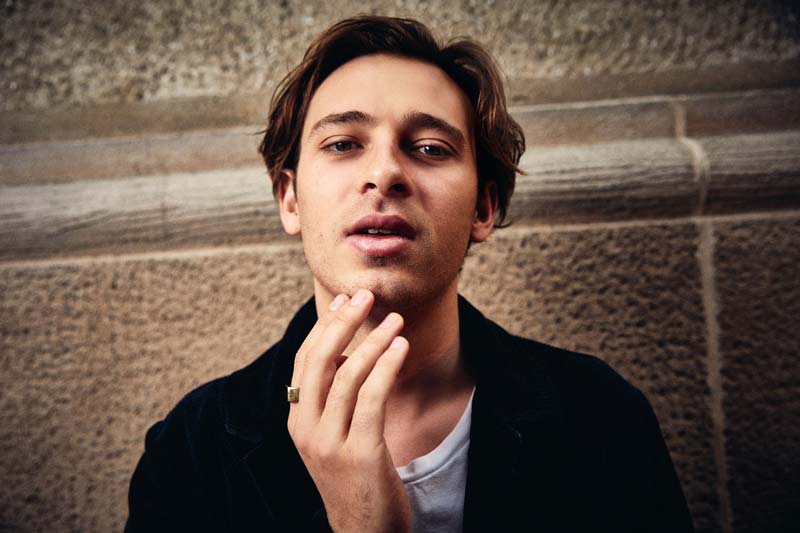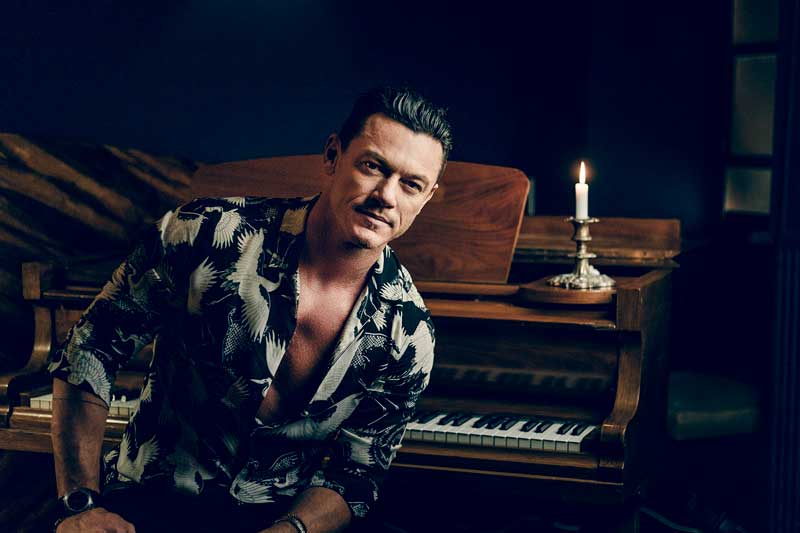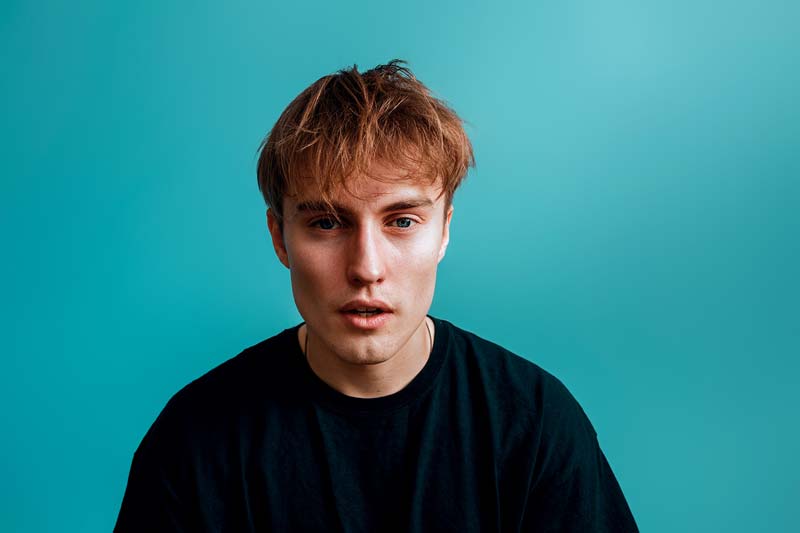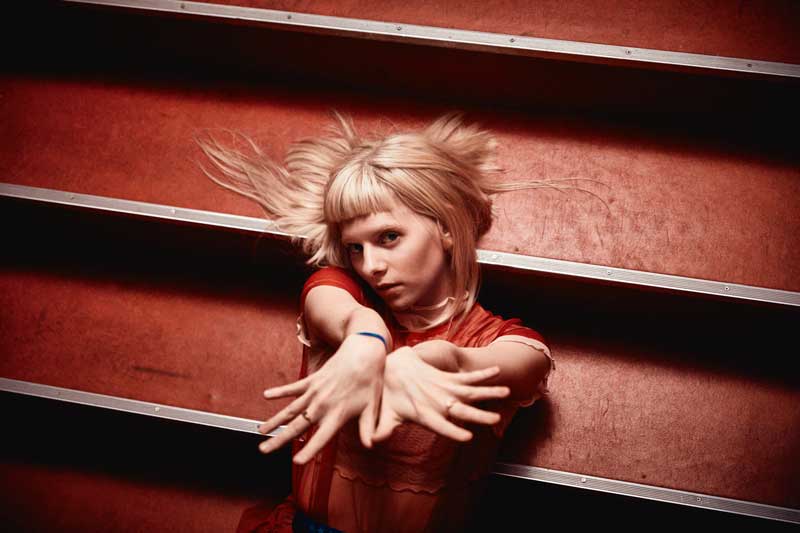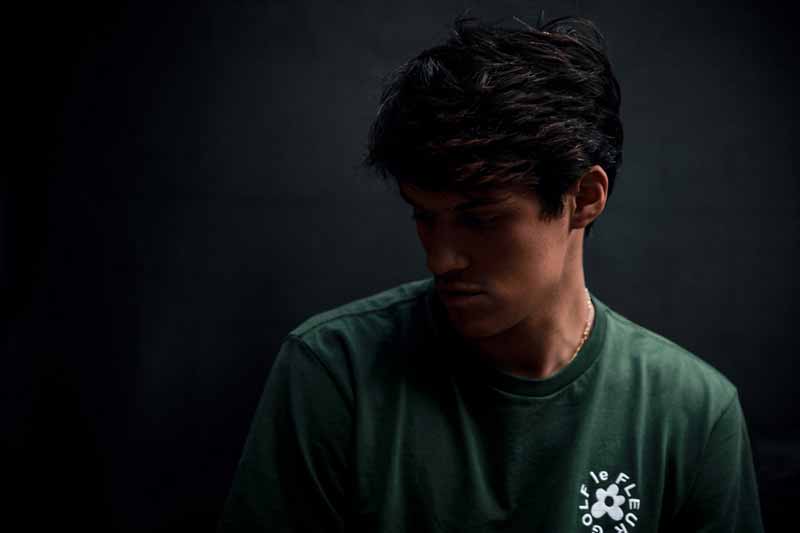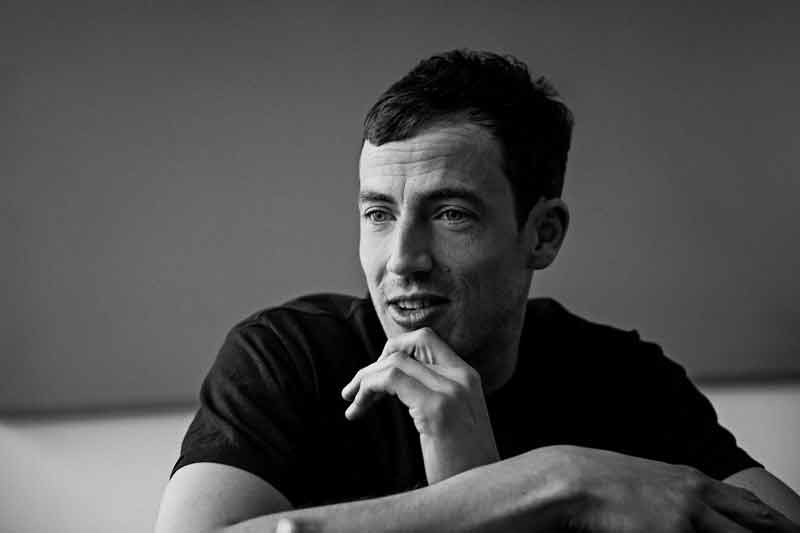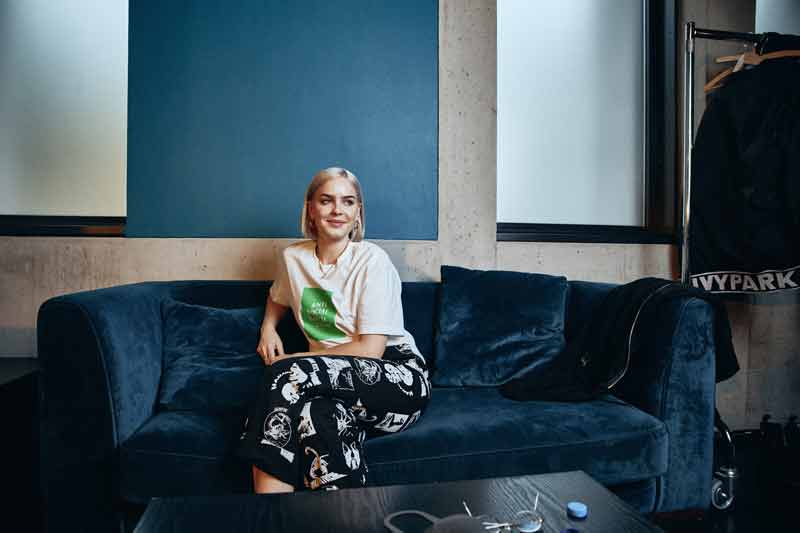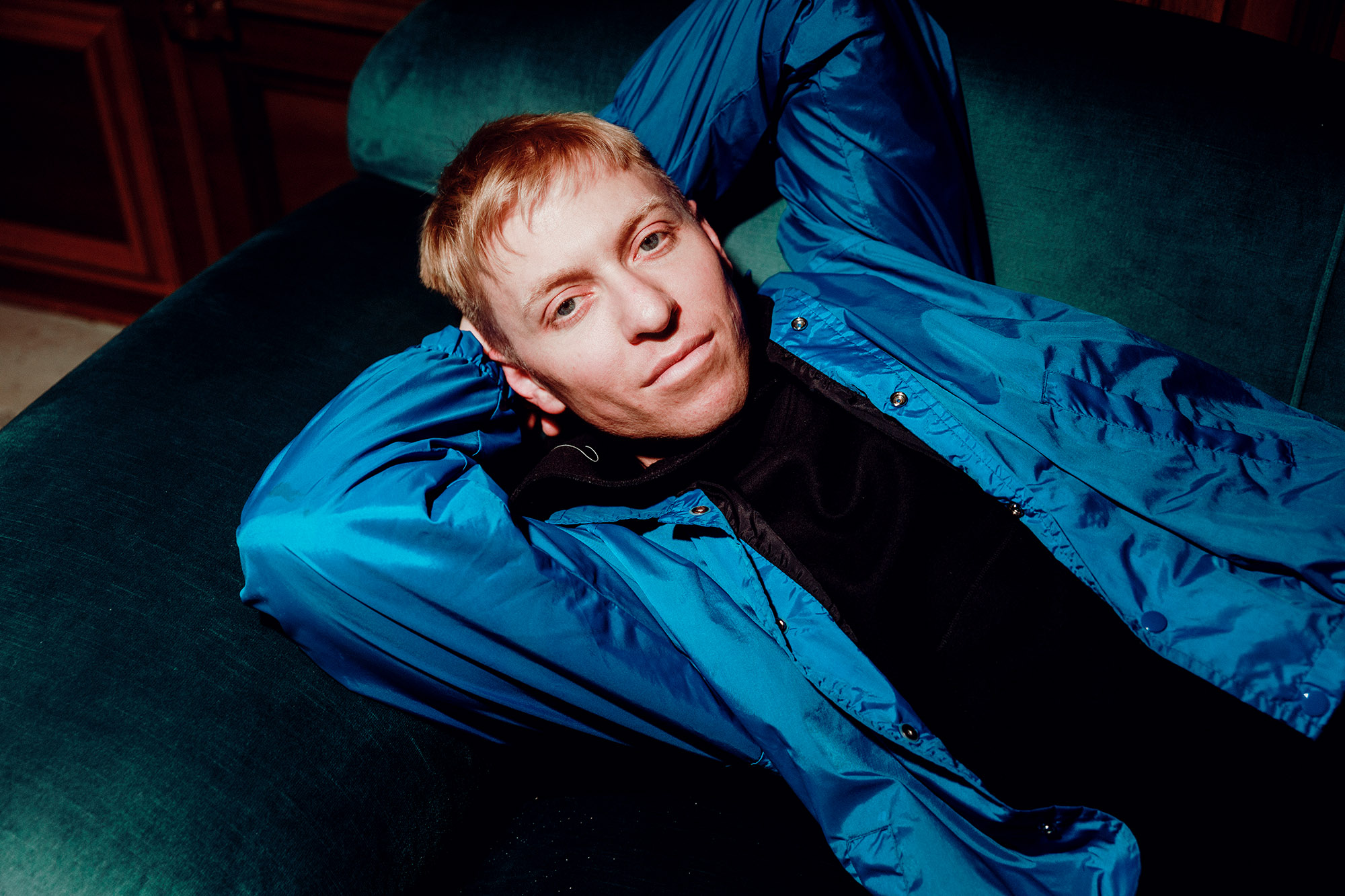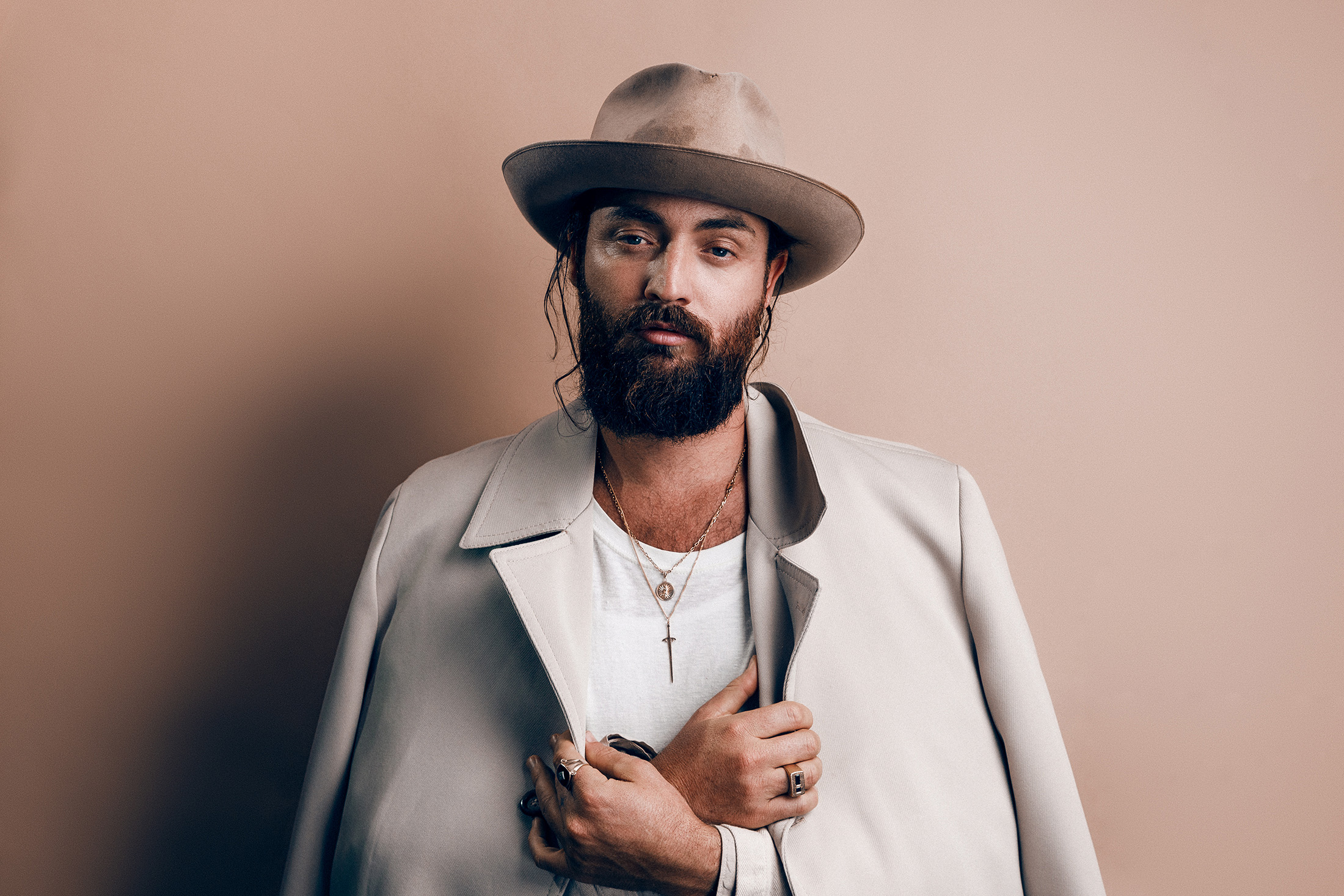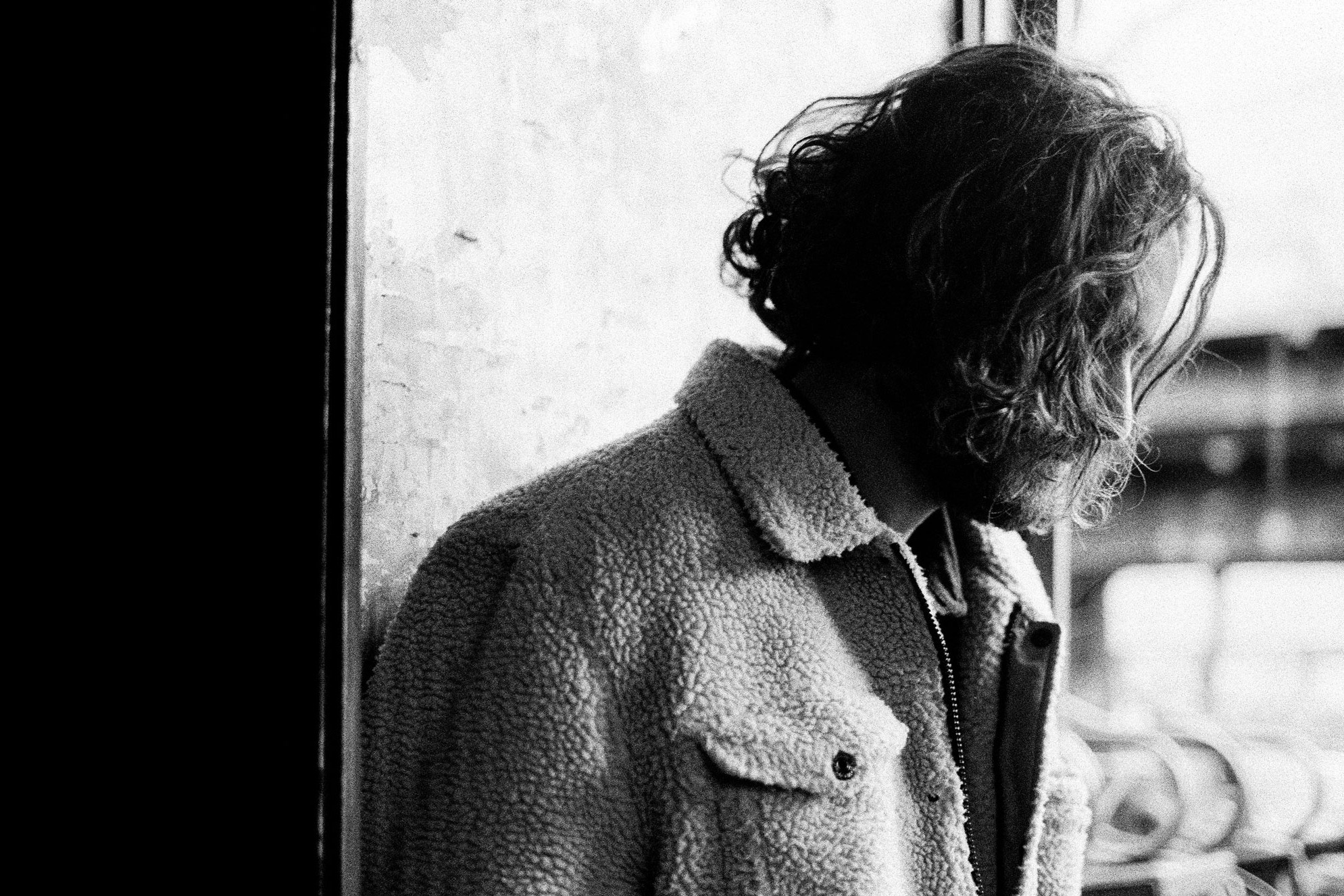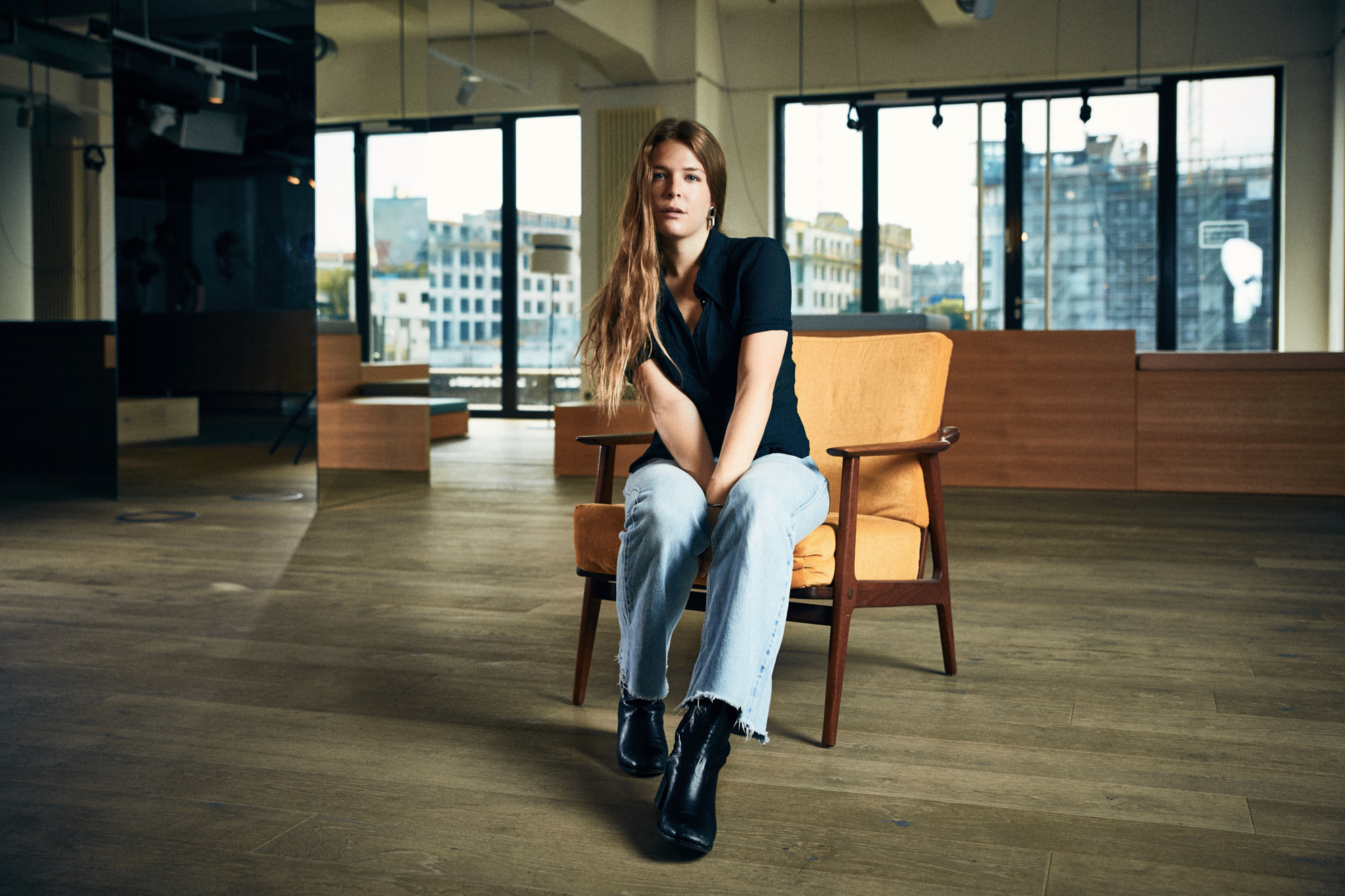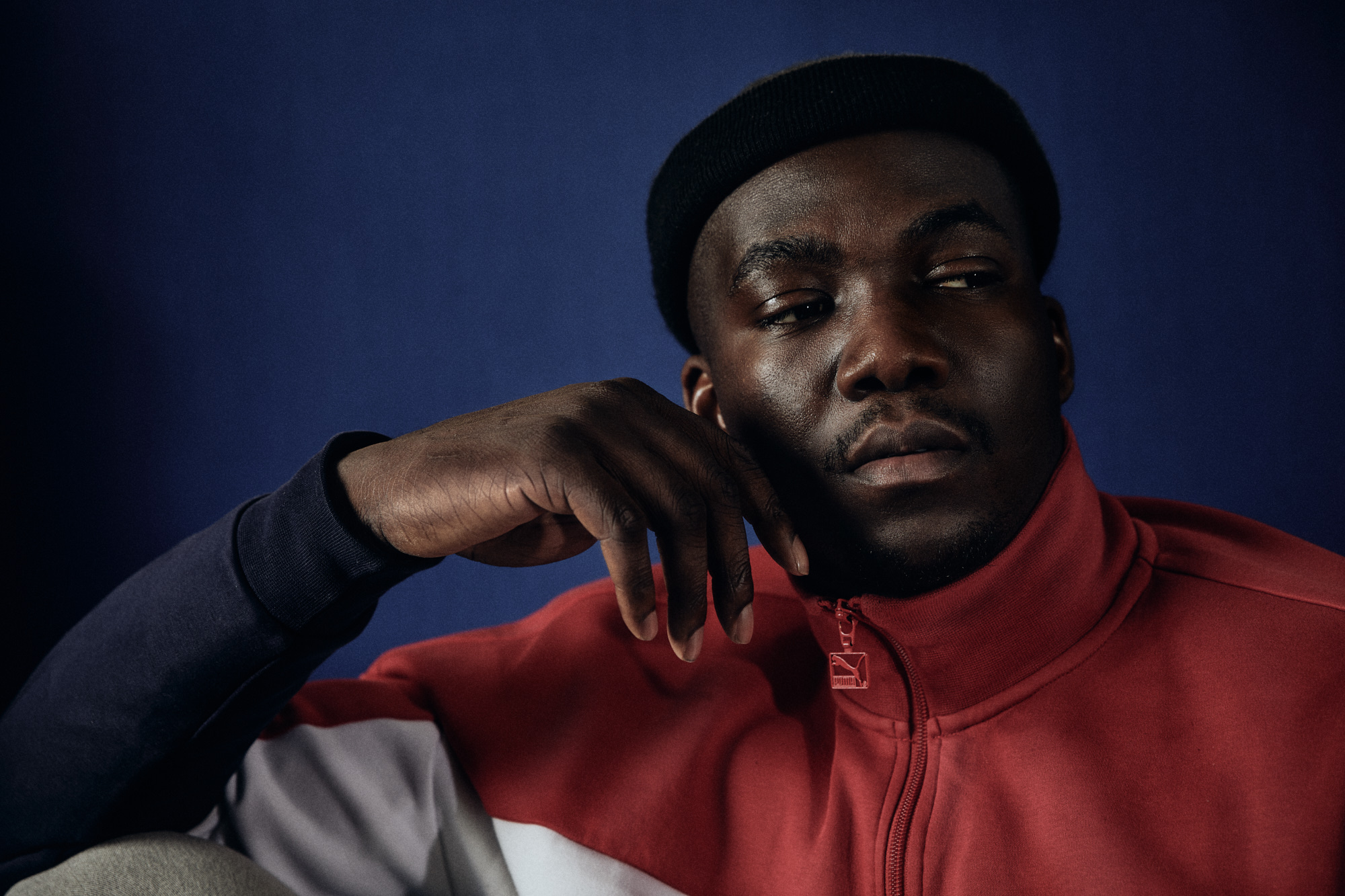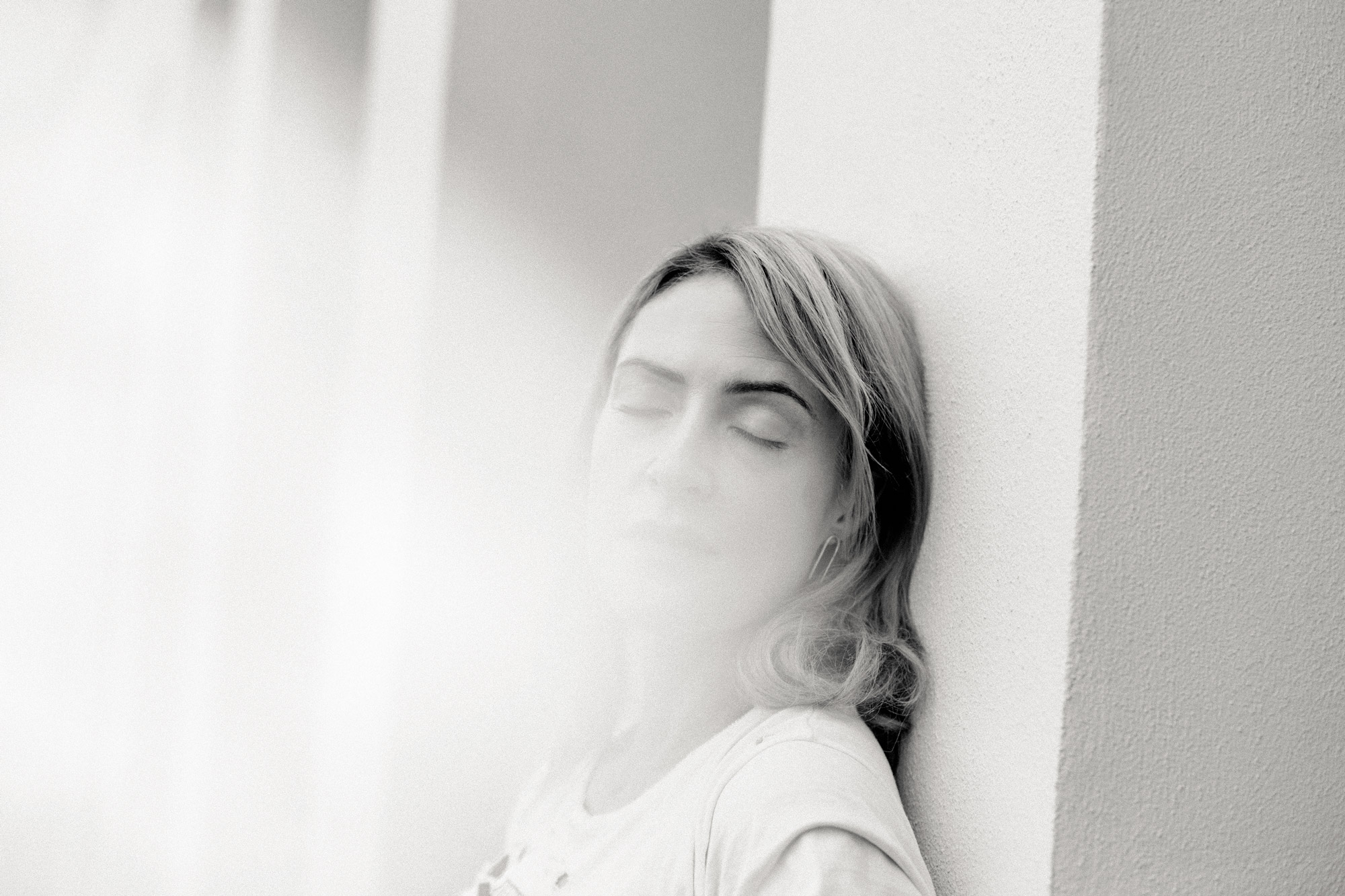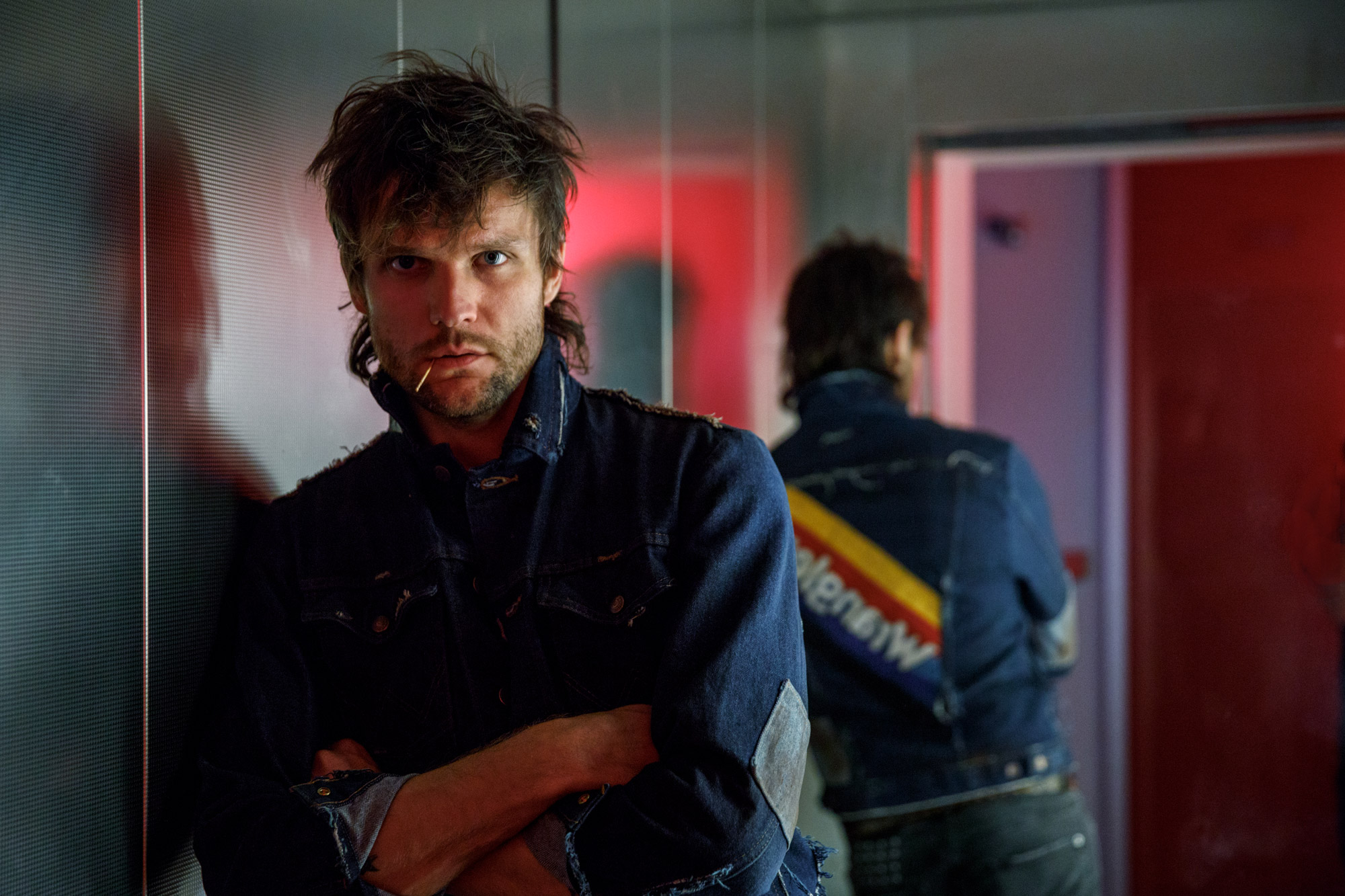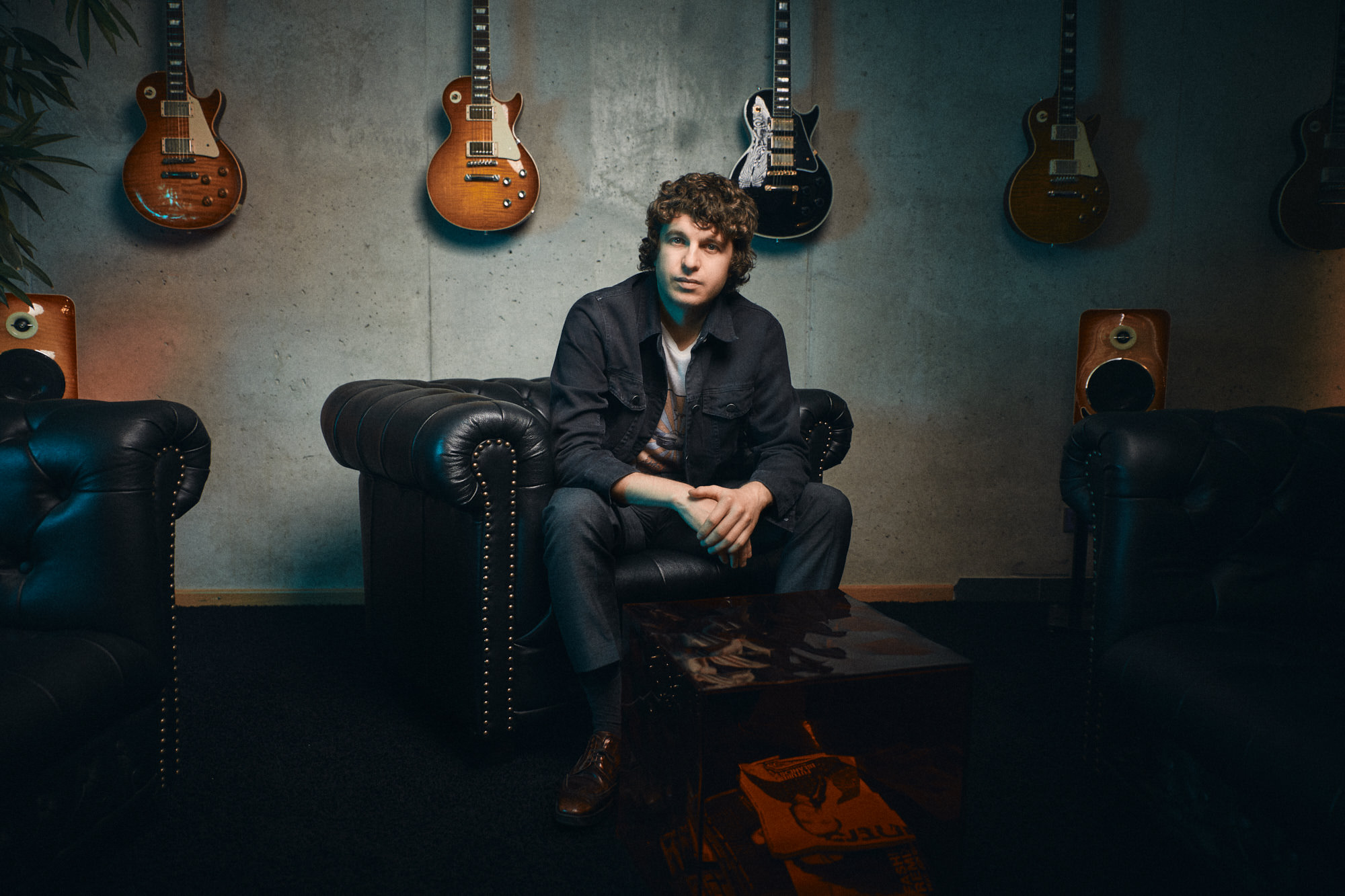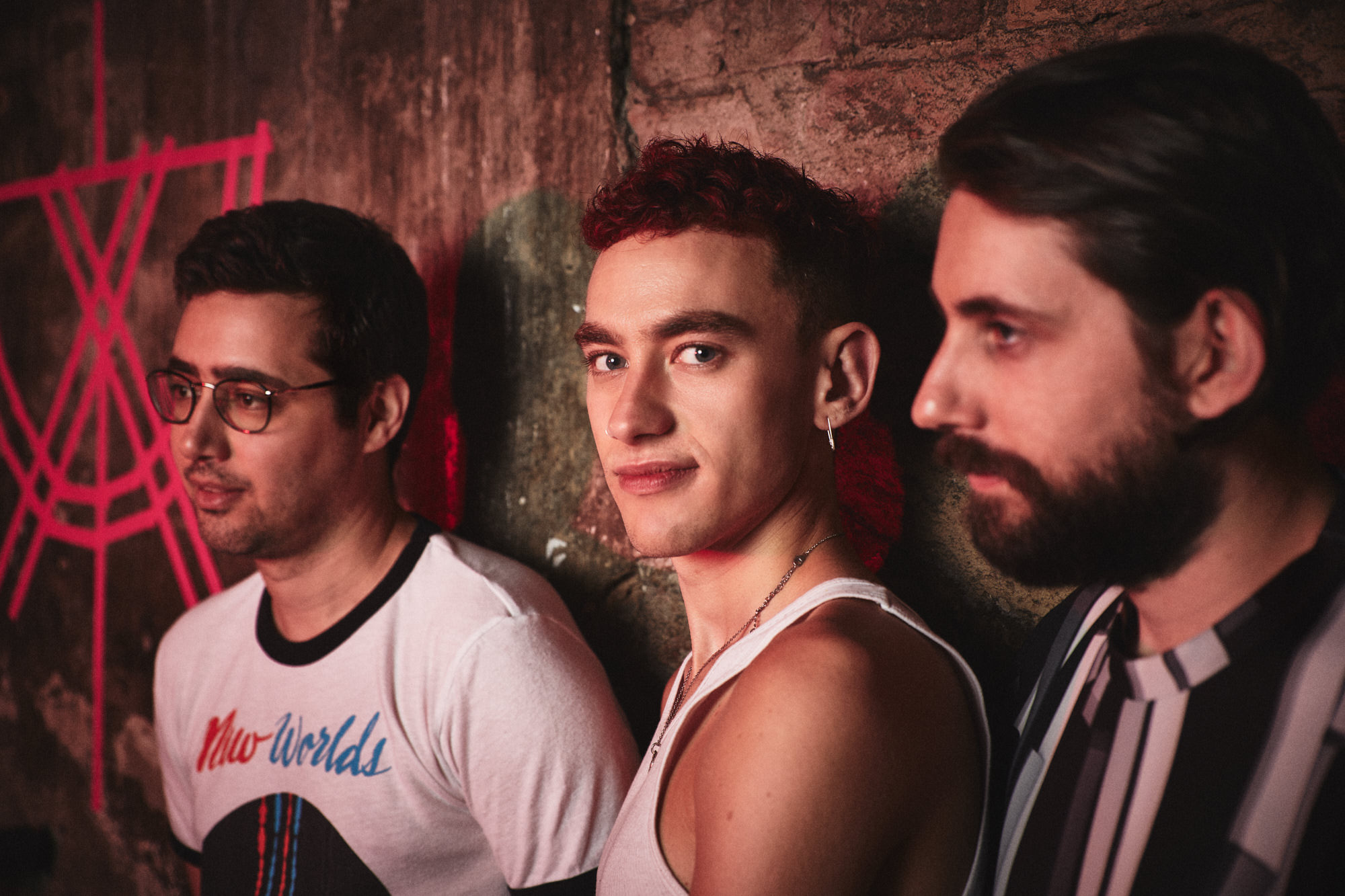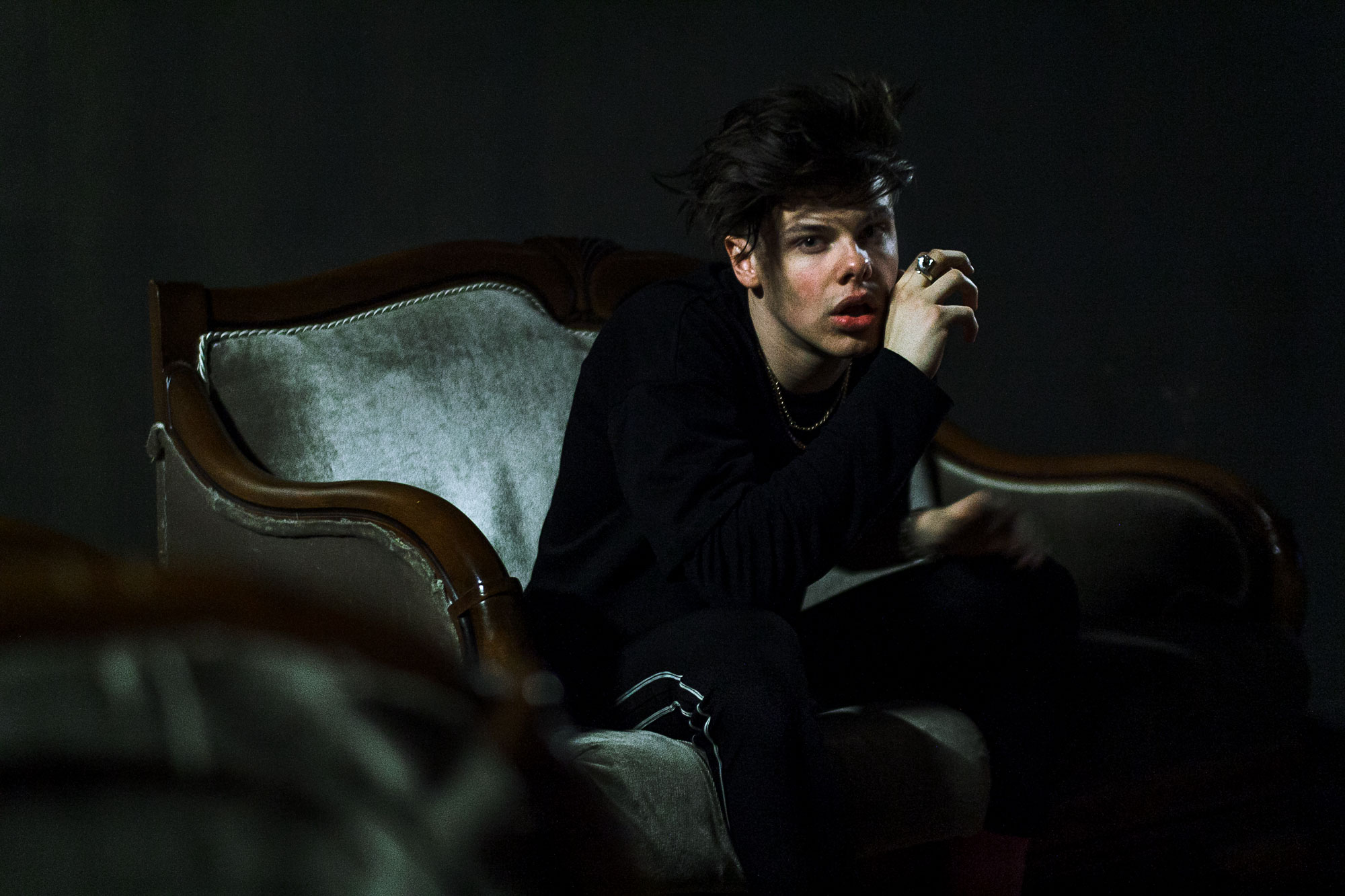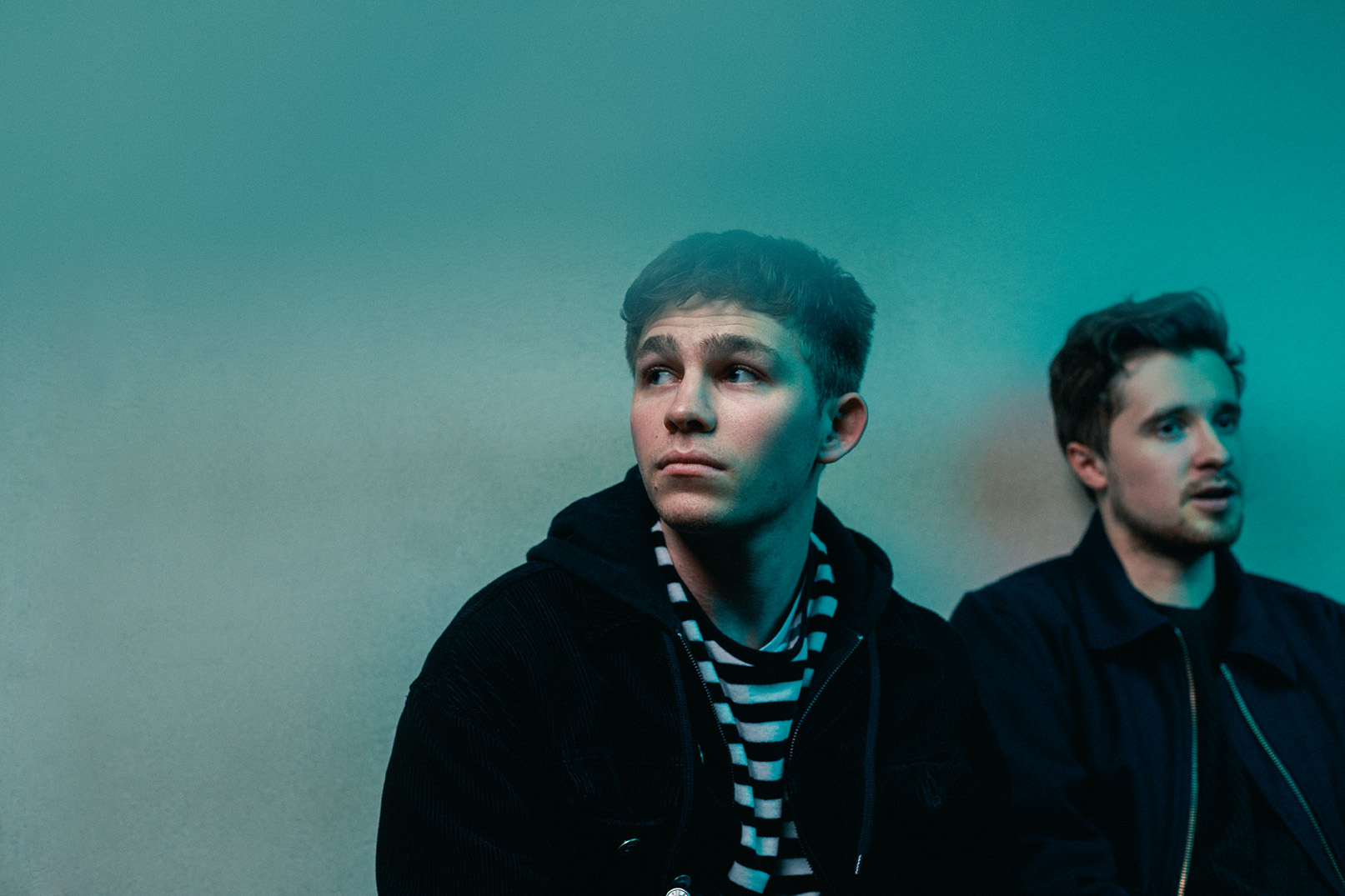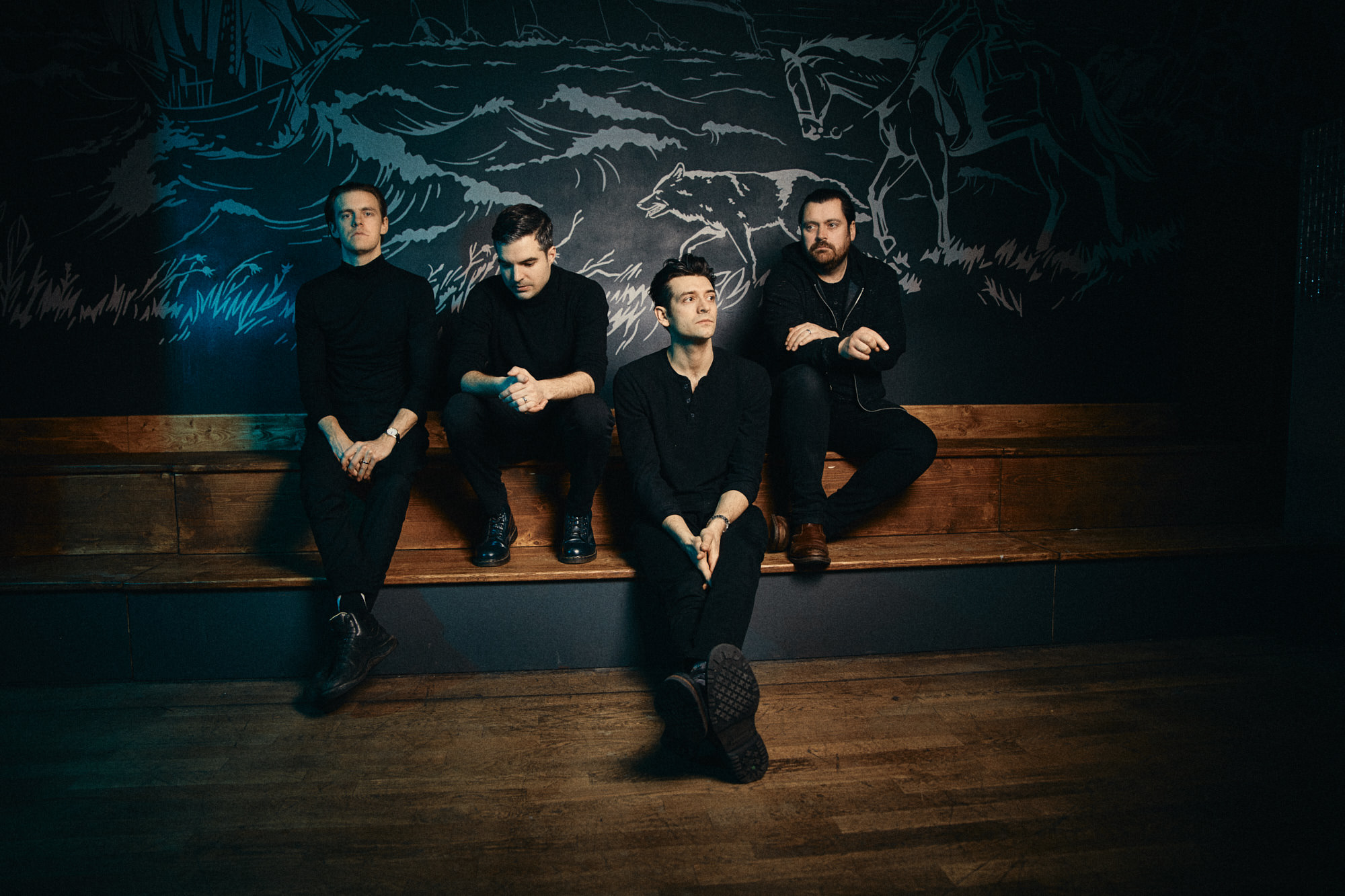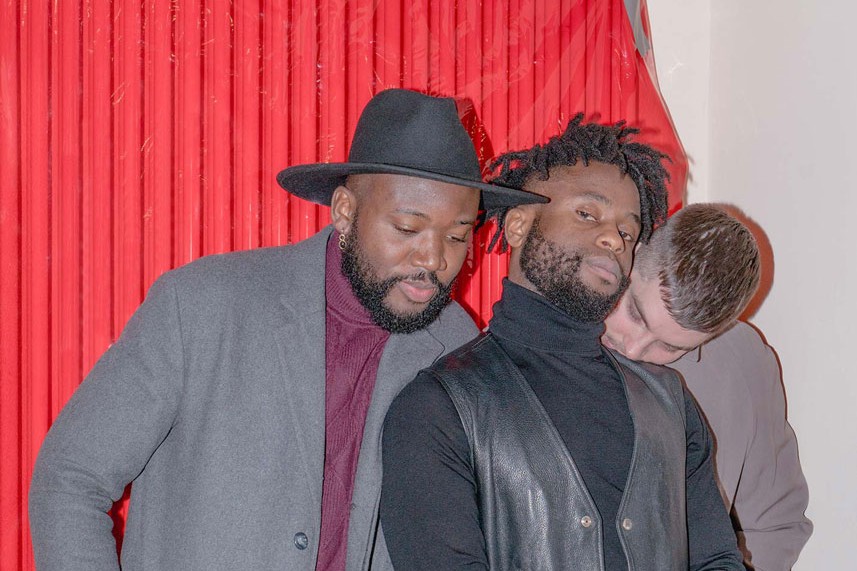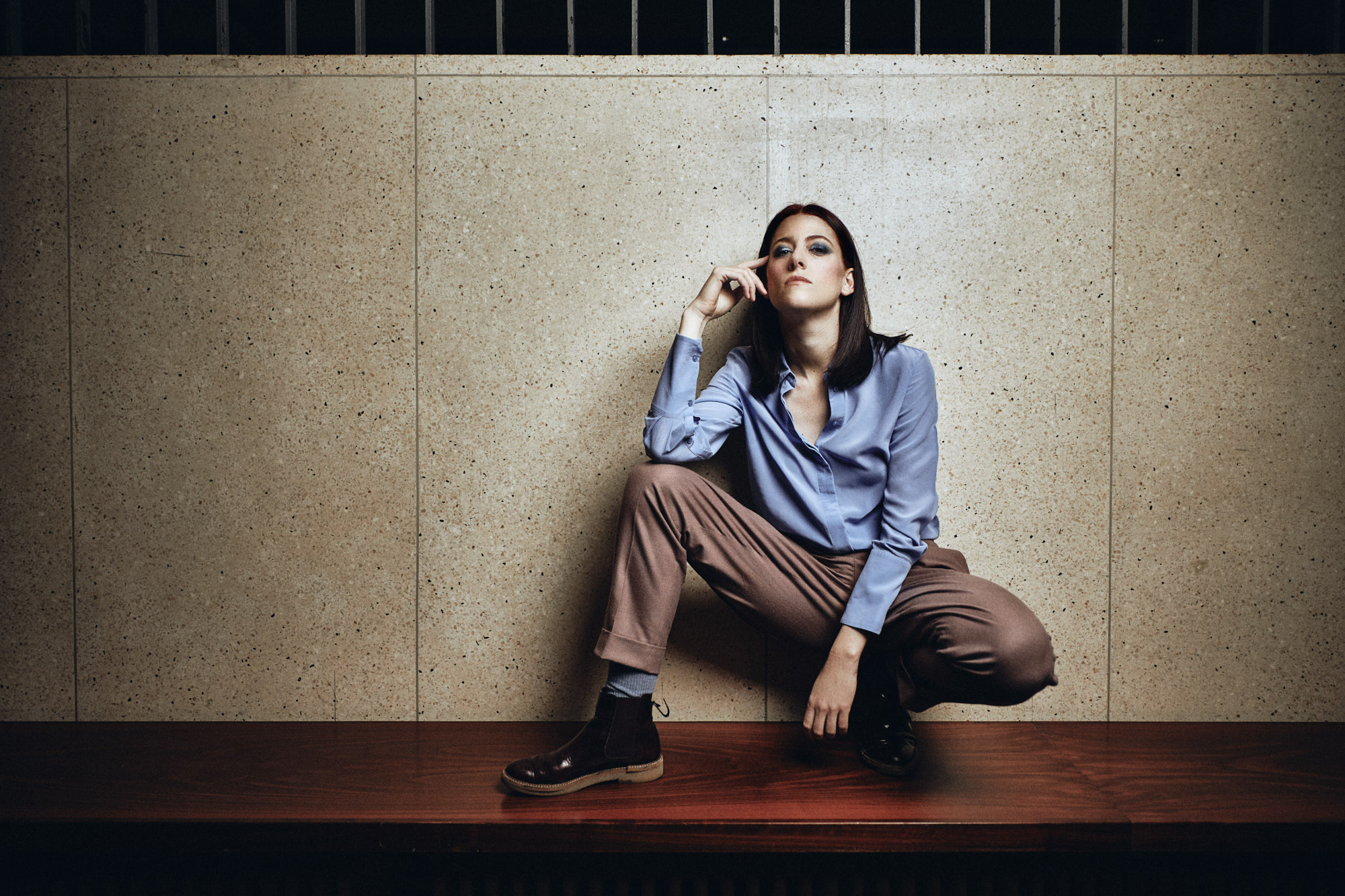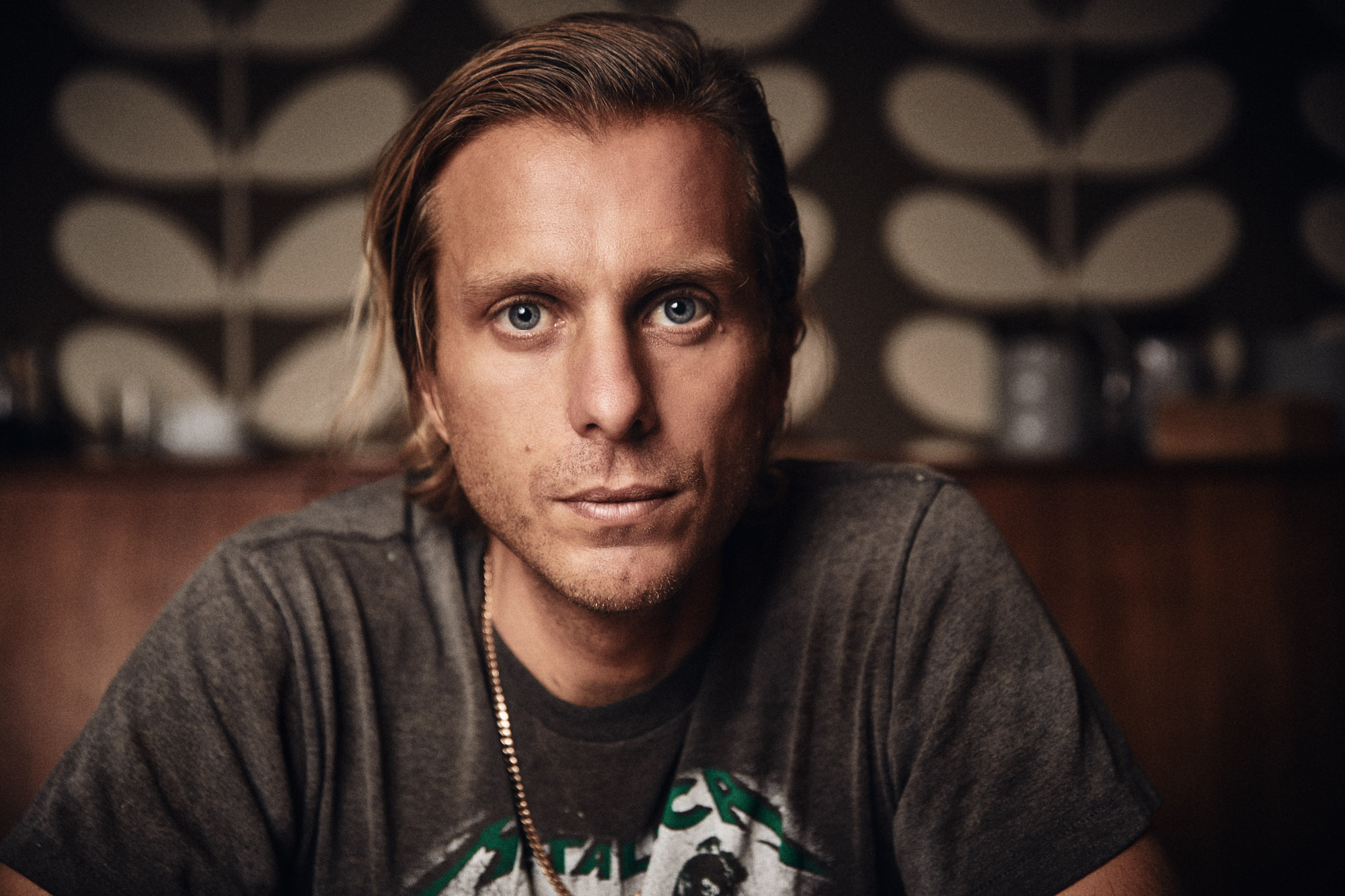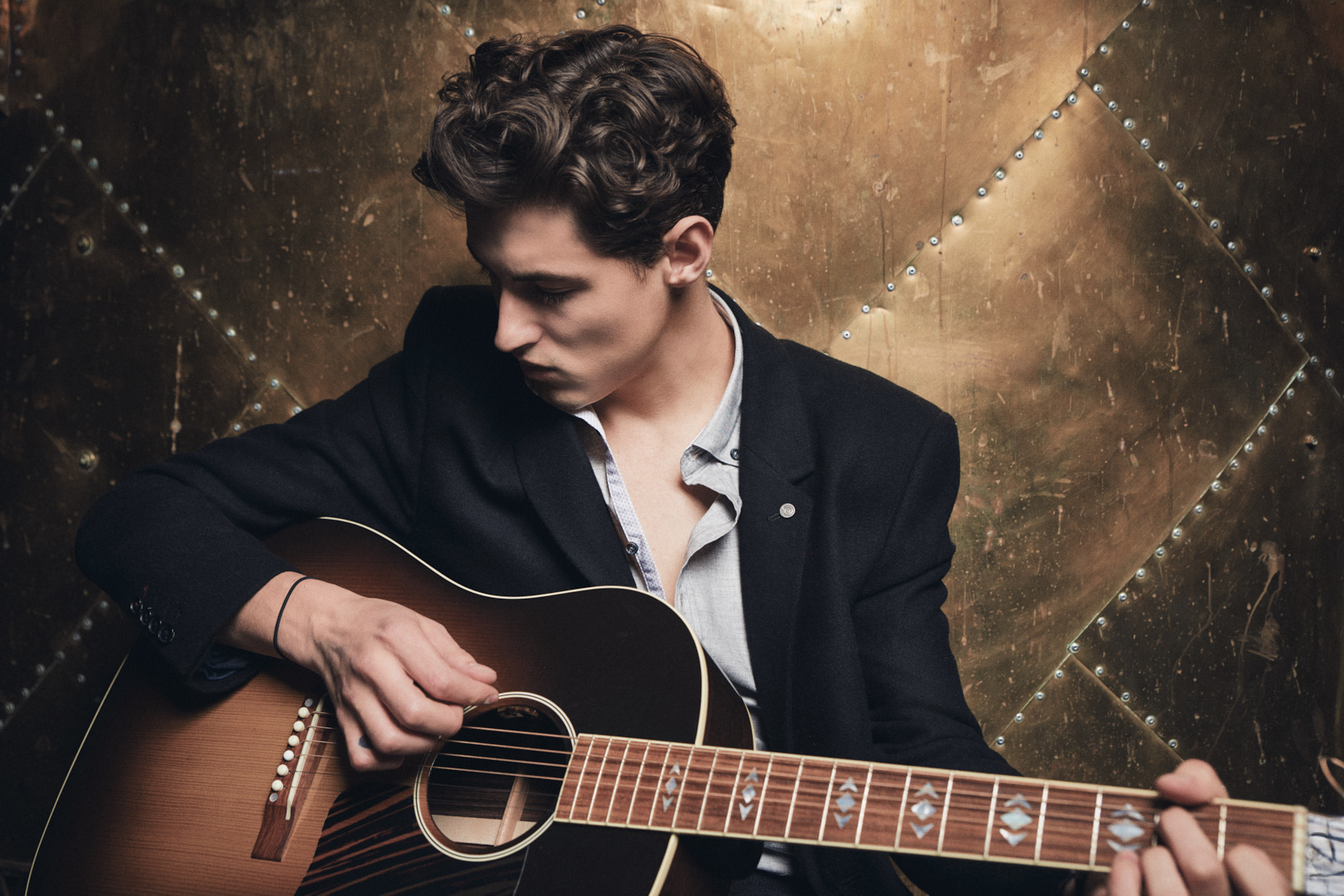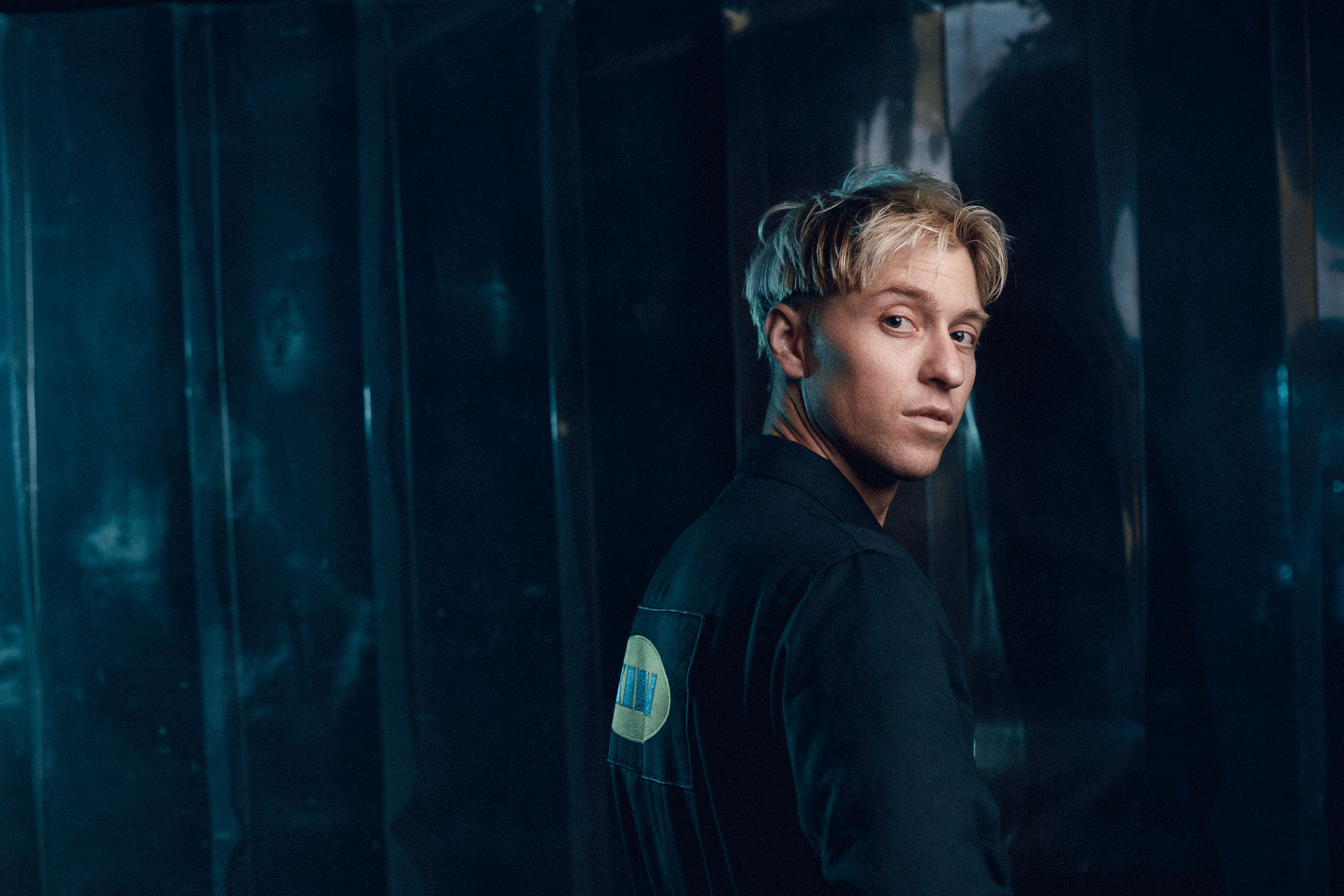Interview — Máni Orrason
»Every single person that I’ve tried to be has felt strange«
For many years, Máni Orrason had a reputation as a cute youngster who talks openly about his emotional state and wraps it up in pleasing pop music—a role he had given himself. With his new album, »The World Is Big And You Will Never Find Me,« he not only shows several new musical facets of himself, but the young man also seems to have grown up to be a little more at peace with himself. We met with him for a very personal interview about self-acceptance, his obsession with nostalgia, and the idea of torturing himself in a video.
19. August 2022 — Interview & Text: Jonas Meyer, Photography: Juliusz Gastev
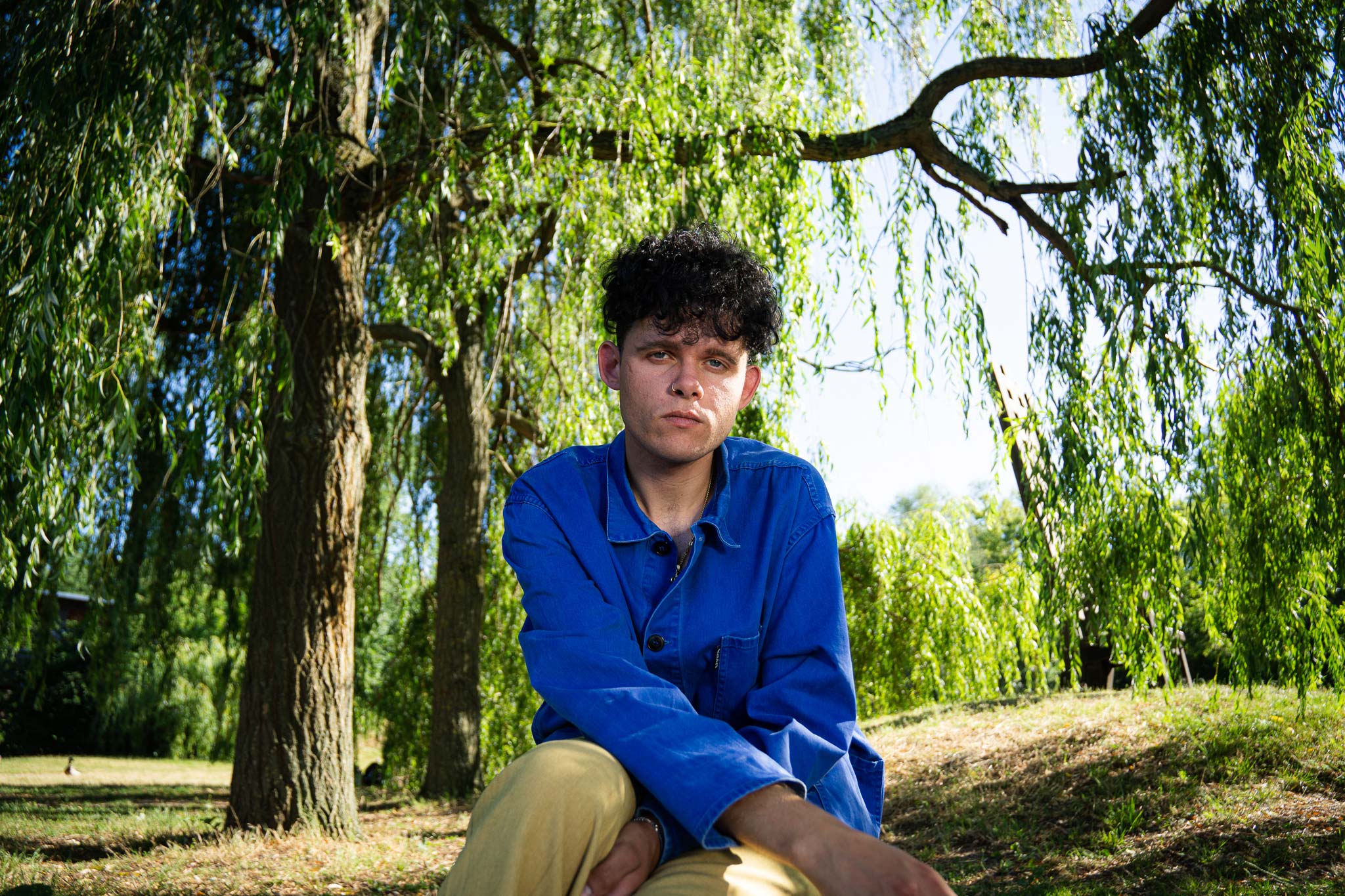
It is remarkable how differently people deal with the past. Some mourn their old selves, others want nothing more to do with them, and still others have made their peace with the person they used to be, celebrating the progress they’ve made and the wisdom they’ve gained.
Máni Orrason does a little bit of everything. The 24-year-old musician who was born in Iceland, lived in Spain for a long time, and moved to Berlin a few years ago, has just released a new album that is the best proof of this. With “The World Is Big And You Will Never Find Me,” on the one hand, he distances himself from his self-assigned role as a cute youngster making pop music. At the same time, the new album feels like a tribute to all the music that has inspired Máni throughout his life, especially his teenage years.
With the anthemic and energetic sound of tracks like “Dreama,” for example, he takes us back to the nineties and the peak times of garage rock. Then there are songs like “Death By Head” that with their dreamy and ballad-like sound seem to come directly out of a love drama, whereas pieces like “I Just Can’t Have It All” could be part of a soundtrack for a high school series.
The new album is by no means something to erase the past, but Máni uses it to document the significant personal progress he’s made, musically and emotionally. And what is most important: This thoughtful young man still speaks so openly and sincerely about his flaws, demons, and insecurities that he continues to create a safe space for his audience with his music.
A couple of weeks before the album release, we met the sensitive and candid musician for an interview at Berlin Funkhaus Nalepastraße, a huge building complex under monument protection where the GDR’s state radio once had its headquarters. Today it is abuzz with countless creatives, including musical artists who have set up their studios here—including Máni Orrason. What an inspiring example of honoring the past!
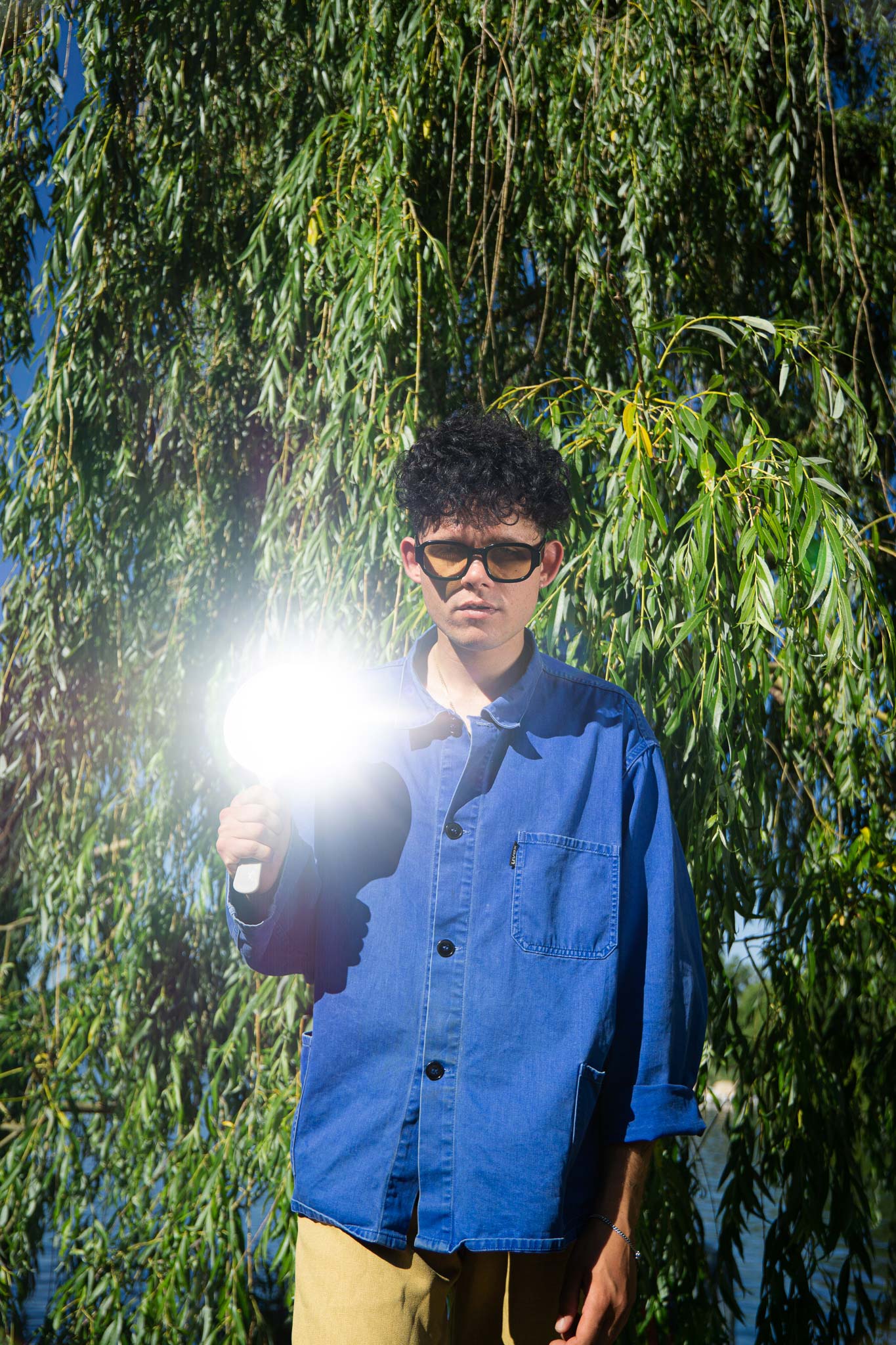
»I’ve always presented a pre-defined, stylized version of how I wanted to be perceived.«
MYP Magazine:
Máni, in the press kit for your new album you say: “So much of the new album is me trying to hide in public or run away from something.” We were wondering what part of your personality you are talking about, because you used to speak very openly about your feelings, fears, and weaknesses—as for example a video interview with Diffus. Can you explain this supposed contradiction?
Máni Orrason:
I’m aware of the fact that I give a lot of different signals through the new album. In its various tracks I sometimes put myself into the role of a big rockstar who’s not giving a fuck, and sometimes it happens that I seem to be the complete opposite—which means I’m depressed and don’t want to live on this planet anymore. For me, listening to the record feels like I’m not defining a certain vision or idea of myself—you just can’t pinpoint me. I think that’s because in the past, I struggled so much with my performed identity, as I used to call it.
I’ve always had the feeling that, no matter how much I tried to be myself, I was just performing something. I’ve always presented a pre-defined, stylized version of how I wanted to be perceived. With the new album I try to show that I don’t want to define myself anymore. I simply just can’t—because that would cause many existential feelings like, for example, being a fraud, a liar, or something else. That’s why I really wanted to hide in public, just releasing all the songs and letting all the different facets of me exist together.
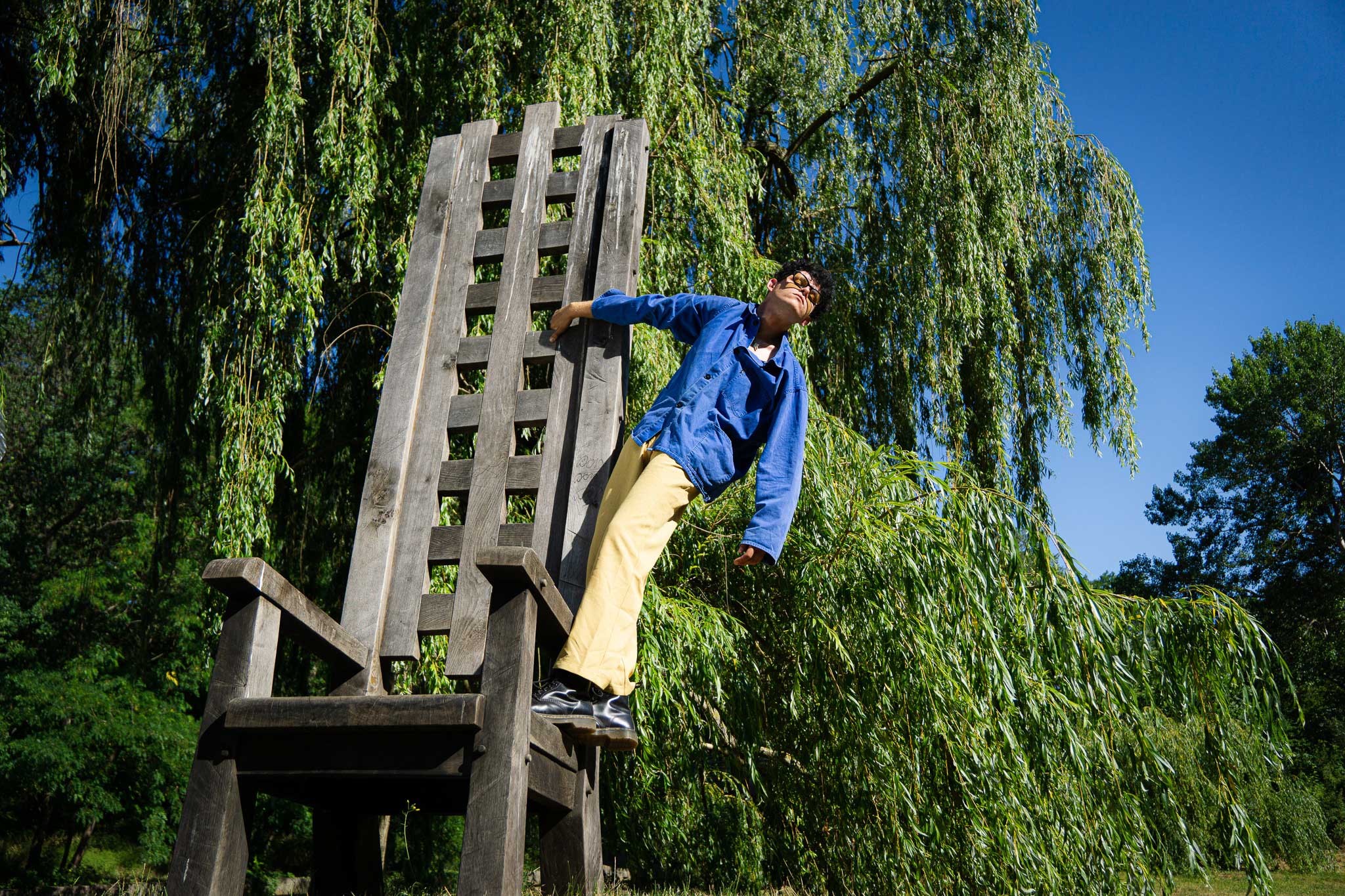
»Today I really try to keep doing music in a form that doesn’t feel insane or fraudulent.«
MYP Magazine:
Was this “performed identity” one that you had defined yourself? Or was it created by someone else?
Máni Orrason:
It has always been me. But…
(Máni ponders)
MYP Magazine:
… you had put yourself in a position you didn’t like anymore.
Máni Orrason:
Yes, in a way. I always struggled with the characters I presented. But today I’ve come to a point where I really try to find a way to be happy—and to keep doing music in a form that doesn’t feel insane or fraudulent. I know that these two words sound extreme, but I had so many weird identity issues throughout my life when it comes to myself and my music that every single person that I’ve tried to be has felt strange somehow. Maybe it’s all part of growing up and getting rid of all childhood delusions—fantasies you once needed to survive and to picture a future for yourself. Of course, I wanted to be a rockstar, I’ve lived like a rockstar, I’ve seen myself as a rockstar—but all that in a way that I maybe pictured as a kid.
I see so many artists who seem so stable and so okay with differentiating their artistry from themselves. On the one hand, they have their own identities including their own families and friends, and on the other hand there’s this second world with their music. I personally have never been able to live like that. My music has always been an extension of me and such an important way to express and define myself. That’s why I live very quietly now, especially on Instagram or other platforms. I don’t like to say so much anymore, I don’t like to give so much away. That makes me feel safer and more creative.
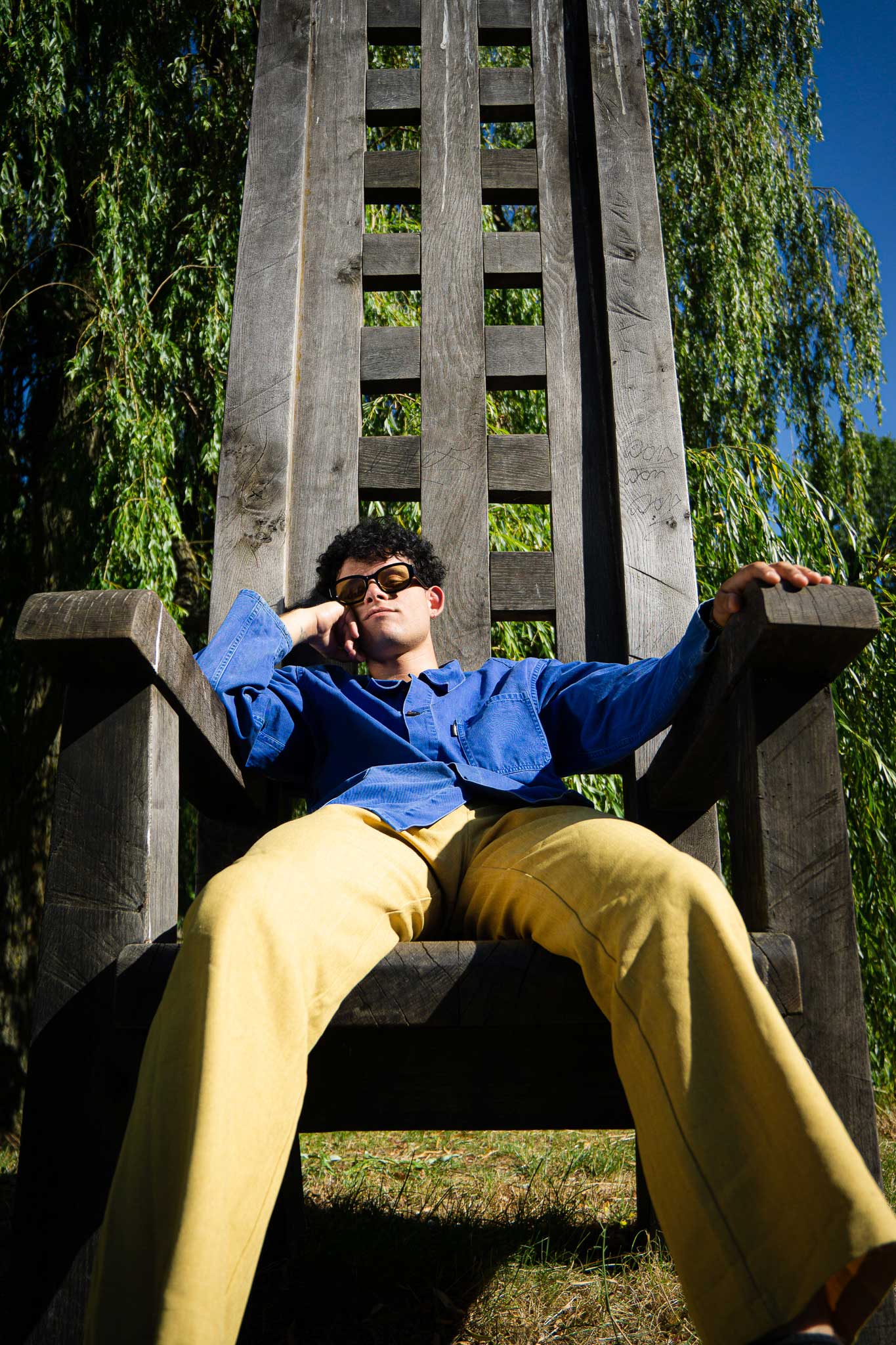
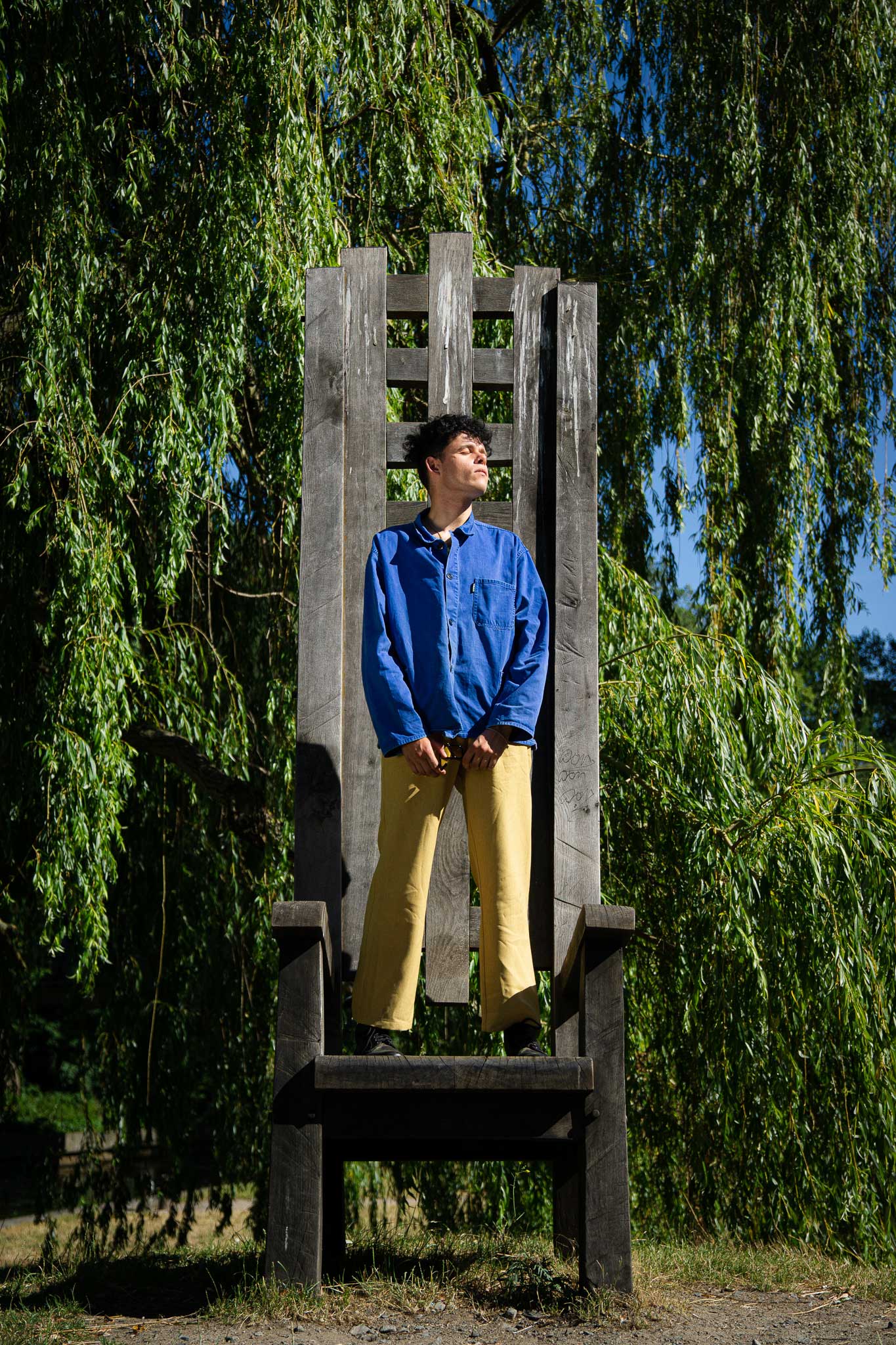
»I just wanted to go pop, look cute, shake my butt, and smile pretty.«
MYP Magazine:
In contrast, you tell a lot about yourself in your music—in the song “Coffin,” for example, which in places sounds like an inventory of your state of mind, with lyrics like Baby Angel on the run / See the ticking of the clock / Don’t know what I’m running from / I’ve been stuck in between / Where I don’t know anyone. From what emotional place did you write this track?
Máni Orrason:
There was a moment a few years ago when I almost signed with a British major label. I flew to London, had a meeting with 20 people in a boardroom, got the contract offers, and had negotiations with some lawyers afterwards. One of these people told me: “If you do this, you have to be ready. You should talk to your friends, to your family, and especially to yourself to find out if you’re really ready to commit to this—because it’s forever.”
But I wasn’t ready. When I made the “Baby Angel” EP, it was clear for me that I just wanted to go pop, look cute, shake my butt, and smile pretty. It was just fun. But then a little after, when I had the negotiations with the label, the music I was making in the meantime was very far away from this. So, I started to feel very anxious about the deal and decided not to sign with them. I just backed out.
This is kind of where “Coffin” comes from. The song describes the feeling of really being stuck in my destiny. With the lyrics I got my jacket from Lou Reed / My coats are not my own / I’m a ghost in leather jeans, I’m characterizing a vapid star of the show business who’s sold to the devil; a situation that’s like shooting yourself in the foot.
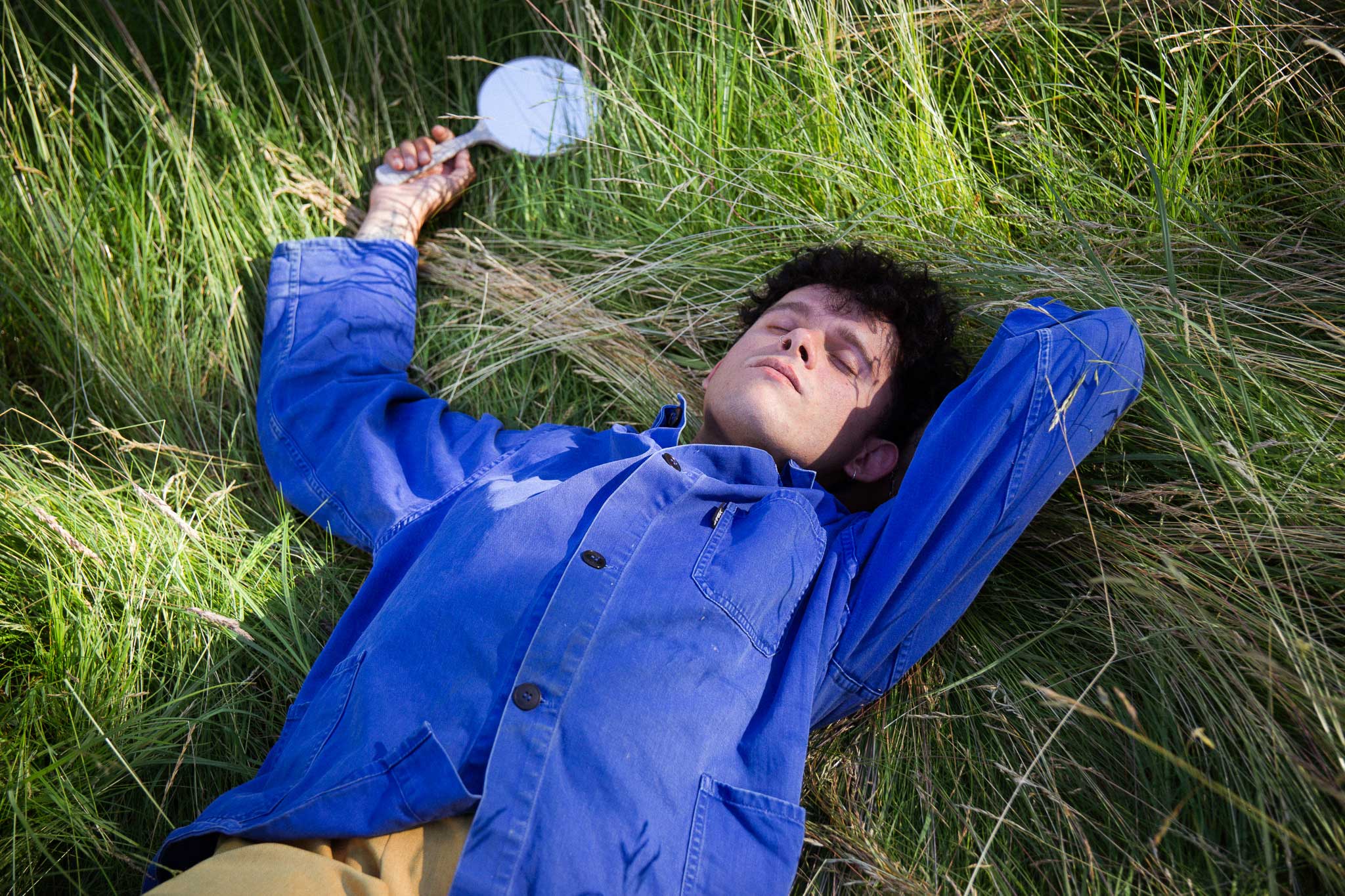
»I had to learn again to accept parts of myself that I had long found so cringe and embarrassing.«
MYP Magazine:
With its anthemic and energetic sound, your album really took us back to the nineties here and there. The song “Dreama” for example reminds us of the peak times of garage rock. “Death By Head” has a very ballad-like sound that could come directly out of a love drama. And your track “I Just Can’t Have It All” could be part of a soundtrack for a high school series. What musical world did you want to create with “The World Is Big And You Will Never Find Me?”
Máni Orrason:
A collage, basically! It took me about two and a half years to make it—the album went through so many different stages. There was so much time to get lost in different worlds and then, somehow, to find the link between everything. At a point for example I was really attracted to these larger-than-life music styles. I guess that’s why many songs sound so huge, cinematic, and diverse.
(As we sit talking by the water, a small boat passes us by, loudly blaring the song “Sugar, Sugar” by The Archies.)
Máni Orrason (smiles):
Oh, I love these party boats—but not when they play terrible music! But let’s get back to the new album: When I was working on it, I felt in many ways that I was really coming back to a teenage part of myself. It was going full circle because I had to learn again to accept parts of myself that I had long found so cringe and embarrassing. I like this idea that bad things are good, that’s a really self-accepting and emotional way to make a pop punk song out of it.
Besides that, a lot of the new album’s songs are very dreamy and nostalgic. With “Seven” or “White Slugs,” for example, I wanted to create an instant nostalgia for myself. During the last two years, I had so much time to question the past, my relationships, and other experiences. There was a moment when I said: Oh my God, I was once in L.A., doing mushrooms in the forest, and now I’m in my parents’ basement making an album…
MYP Magazine:
… and now you have a studio in the former broadcasting headquarter of the GDR.
Máni Orrason (laughs):
Exactly! So, it seems that I’m constantly living in the past, fetishizing nostalgia and memories. I think this is one of the main reasons why things are so far away from reality on the album. It’s so dreamy, weird, and over the top.
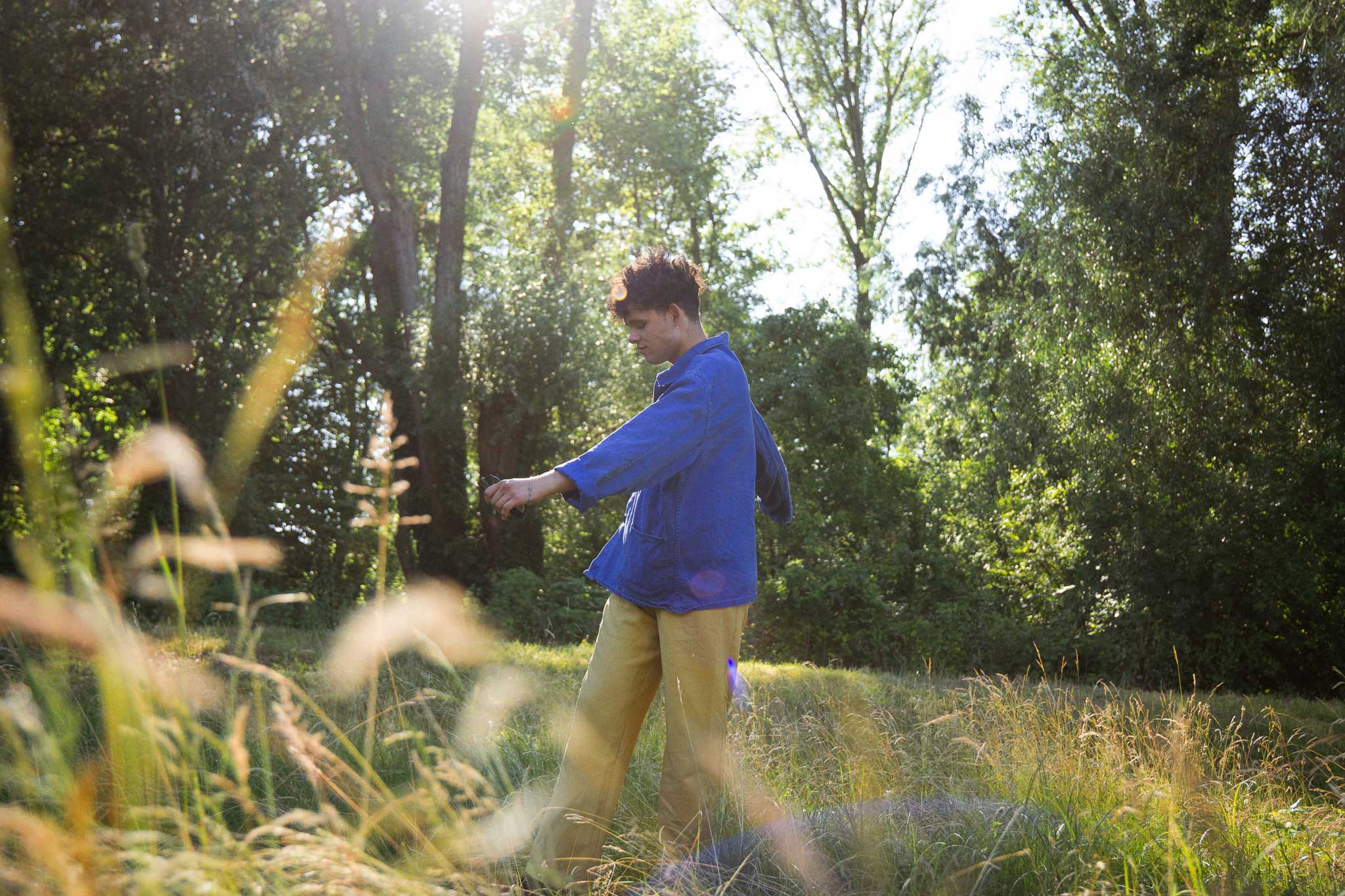
»Green Day opened a whole world for me when I was a kid living on a farm, starting a band out of a cowshed.«
MYP Magazine:
But why this fetish for the 90s? In your music videos for “Change The World” or “Coffin” it seems that you’ve fallen in love with this decade—with all its visualities, fashion statements, and an internet that was still in its infancy. You yourself were born in 1997 and probably have no personal memories of the 90s. What fascinates you so much about it?
Máni Orrason:
The reason why I play guitar at all is Green Day. This opened a whole world for me when I was a kid living on a farm, starting a band out of a cowshed. When I was growing up, I didn’t have a lot of people showing me music and other pop culture things. When I came across Green Day and other bands of this time, it opened a universe for me that I really loved—and that I still associate with my youth.
Two years ago, I got a book called Our Band Could Be Your Life, which is about this Indie-Punk-DIY scene in the America of the 80s and 90s and its specific aesthetics with two-tone posters, Xerox prints, and all this stuff made of a DIY mentality. I’m highly attracted to that world, both sonically and visually. And even if I think my new album is more a pop record, I loved playing with these themes. It’s definitely a reference to that special time.
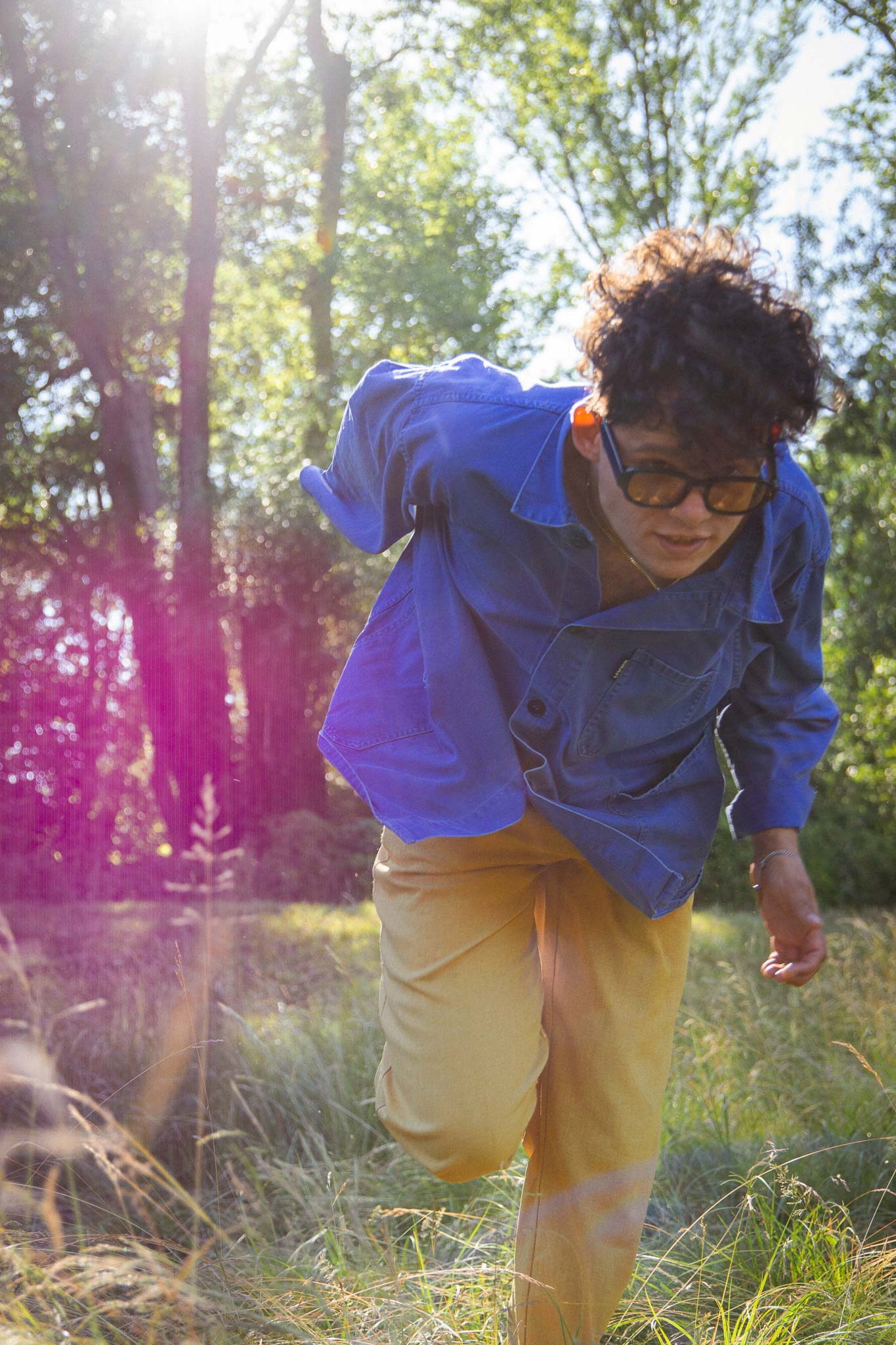
»Me being tortured? My haters will love it!«
MYP Magazine:
There’s another video—for the song “Just Can’t Have It All”—where you play two characters and torture yourself. What does this self-harm stand for?
Máni Orrason:
My original idea was just me hanging super high up from the ceiling. But you can’t do that for three minutes in a music video. (laughs) So, the director Andjani Autumn Gatzweiler developed the concept of torture; I had told her about how living in the past—in memories and regrets—can feel like a form of torture because you can’t let go, you can’t forgive, you’re in a constant cycle. From this was born the idea that I subjectify it and relieve it again and again—and torturing myself was just the most extreme way to visualize it.
MYP Magazine:
Hard stuff…
Máni Orrason (smiles):
…but it’s funny though! And to be honest: When I saw the concept for the video for the very first time, I thought: Me being tortured? My haters will love it!
MYP Magazine:
When you released your album „I Woke Up Waiting” in 2018, it was about personal experiences with bulimia, depression, and anxiety disorders. This album came out of a heavy and dark personal state, as you said at the time. How are you today? What is your relationship with yourself?
Máni Orrason:
Definitely much better. I accepted a lot of things about myself. Today I’m a very different person than I was. For example, I’ve become super social and open in comparison to how I used to be. I was so shy for the first 22 years of my life, basically. Although I feel that I’m still in a constant struggle, there are a lot of things today that have filled the void in my heart that I felt once. I mean, just look at all the friends I have now in my life.
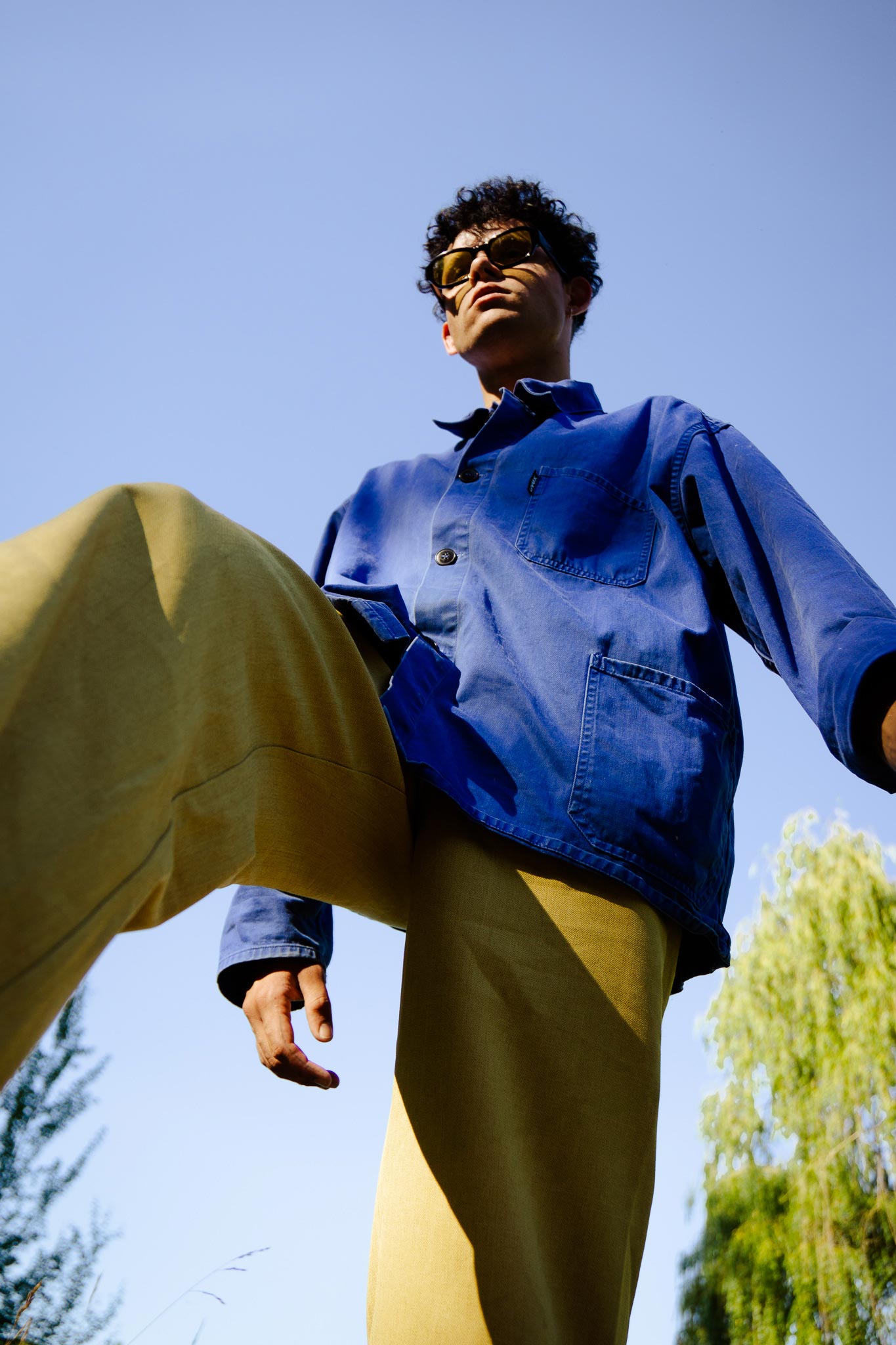
»When I’m broke, he feeds me, and when he’s broke, I feed him.«
MYP Magazine:
One of these friends is the German producer and musician Yann Lauren who also plays an important role in your life professionally. In the video for “Change The World,” for example, we can see him at your side as a guitarist. How did you guys meet? And what does he mean to you?
Máni Orrason:
In March 2020, when the first Covid lockdown was looming, I went back to Spain where my parents live. They called me to fly over because they didn’t want me to stay alone in my tiny apartment. I literally caught the last flight to Spain—and stayed there until August. During that months-long period, I reevaluated my life, processed a very long relationship I had just gotten out of, and let time pass. When I returned to Berlin, it felt that I had very little to come back to. I didn’t have many people to work and feel connected with anymore, so I really started questioning being here in Berlin. But then I thought that I needed to find my people here because I knew somehow that they were out there.
Then something extremely random happened. I was going to have a session together with an artist called Alina. A few days before she asked me if I would mind if Yann joined us. He was producing her EP or something. It turned out that the session was in his apartment, so I went there, to this crazy guy with long hair who had two big speakers in his bedroom. I sat down, picked up a guitar, and started playing. Yann suddenly looked at me and said: “You really play guitar! Okay…” After the session with Alina, we started playing his music, the stuff he was working on—and that was one of the most insane things.
I was so inspired by him and became so interested in this guy that in the time that followed he totally drew me into his world, musically and privately. All his friends became my friends, and slowly we became really close. Now we make so much music together, are best friends, and have our studios across from each other. For me, it’s such a profound type of relationship that I never had in my life before. When I’m broke, he feeds me, and when he’s broke, I feed him. I have so much love and admiration for him.
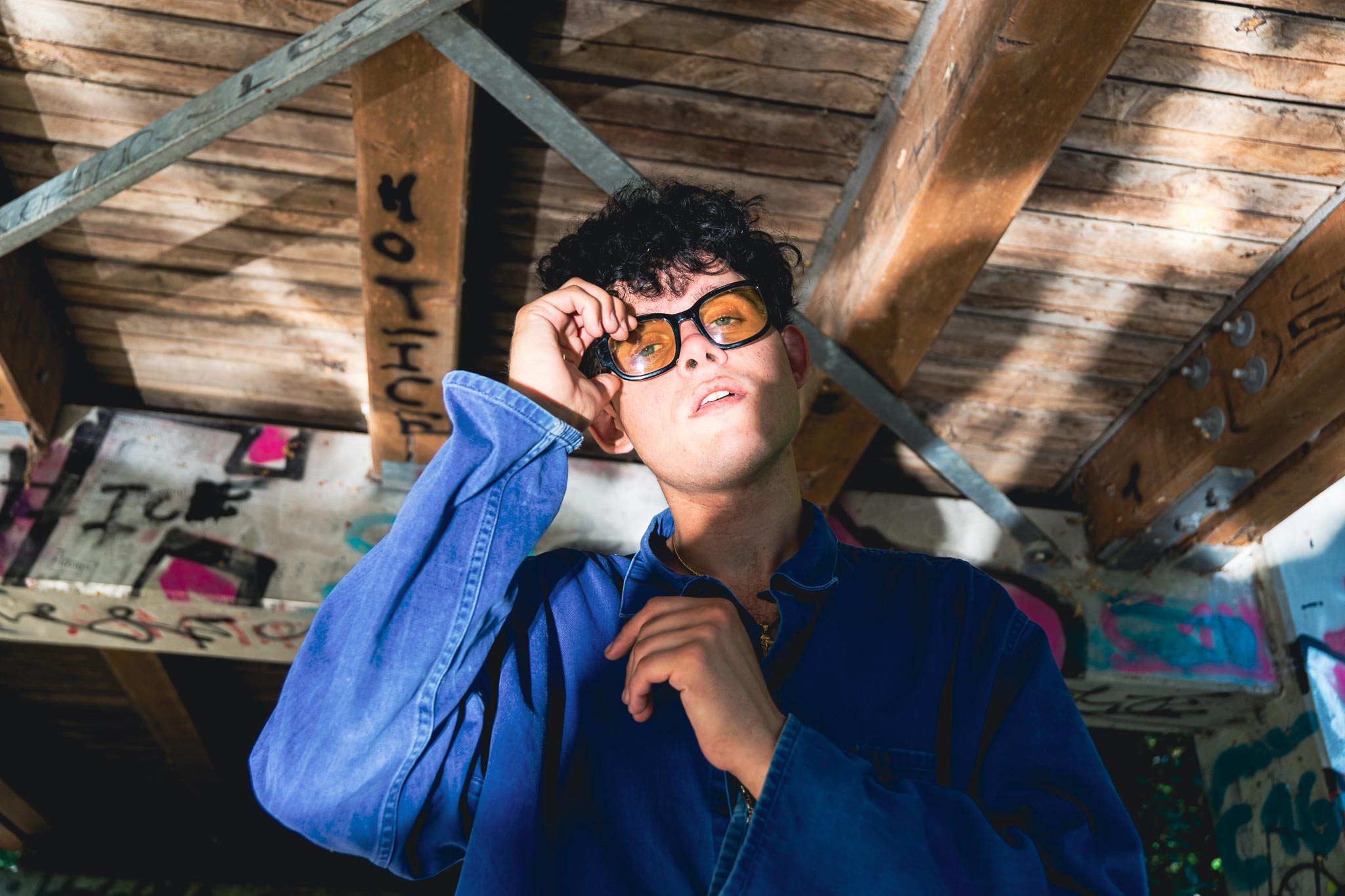
»It was a horrible time—and I’m definitely not going back to that.«
MYP Magazine:
In the music video for “Change The World,” you and Yann show yourselves as two hungry little caterpillars, accompanied by lyrics like To picture a dream and then conceive it / to say what you are and then believe it / You don’t hate your body / just what you feed it. Is the eating disorder still something you’re suffering from? Are you mocking that to free yourself?
Máni Orrason:
No, these lines are a direct reference to the bulimia and body dysmorphia I was suffering from. Back then, I had such horrific feelings about myself, eating just felt like torture. It was a horrible time—and I’m definitely not going back to that, just like I sing in the song. I am not this person anymore, I really let this part of myself go.
MYP Magazine:
Many thanks that you’re so open about this topic and share your experiences with us! It’s not something that a lot of people talk about.
Máni Orrason:
Today, I feel comfortable talking about it. Talking to people helps.
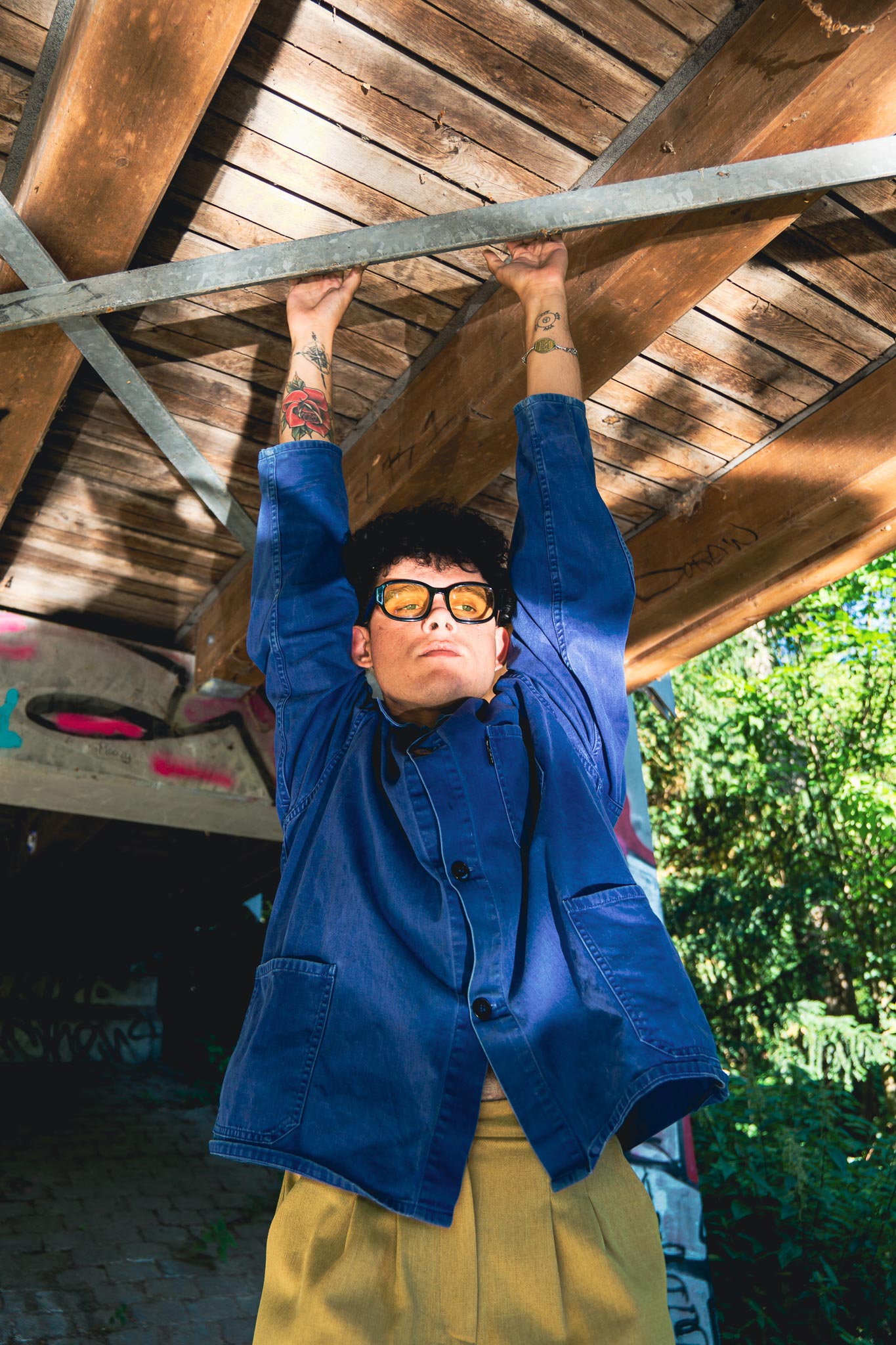
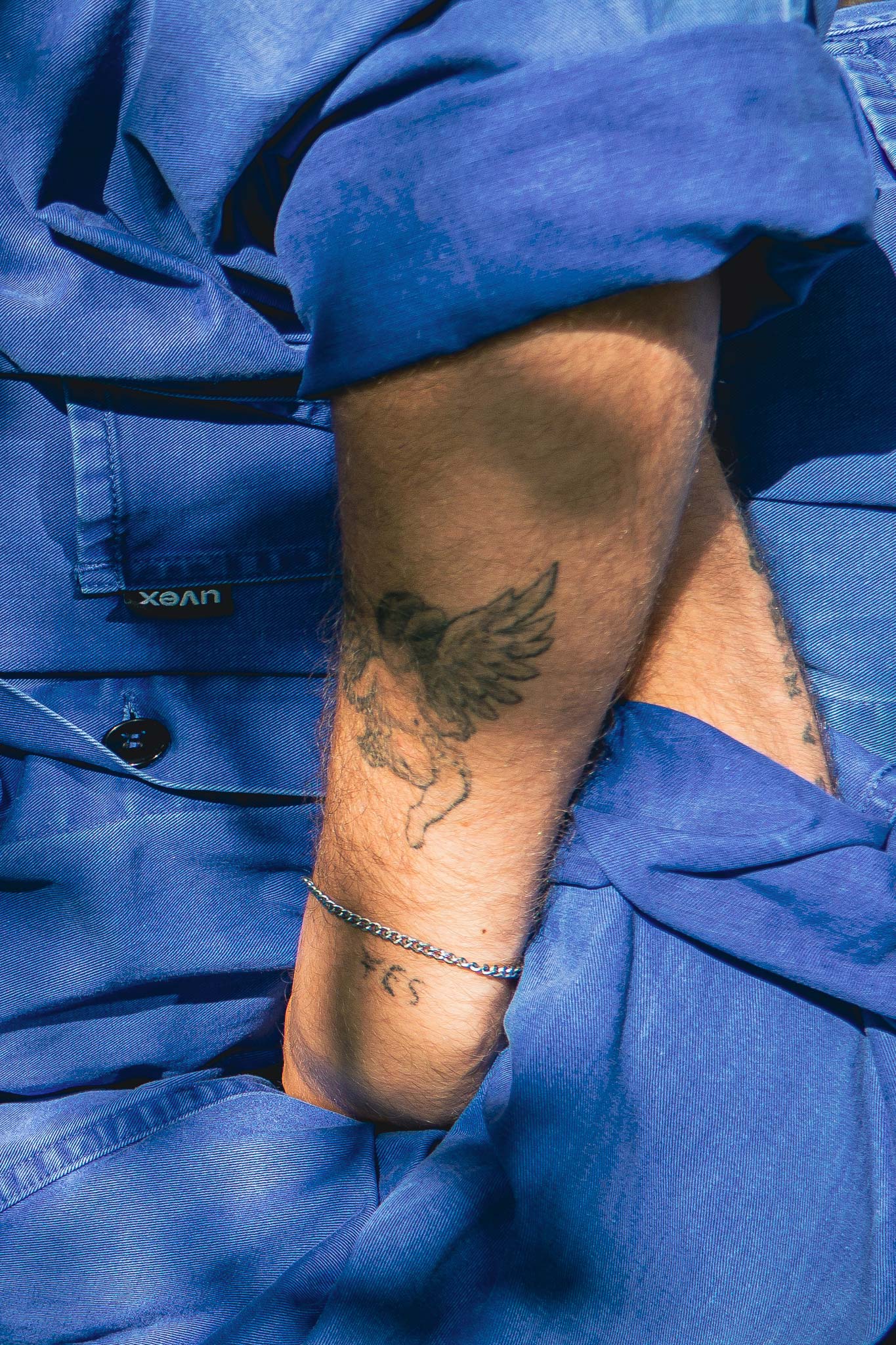
»My anger was always expressed in sadness.«
MYP Magazine:
Listening back to the last seven years, it seems that one can hear less anger and more serenity and self-confidence in your voice today. Do you also perceive it that way?
Máni Orrason:
Actually, no! I’ve really never been angry. My anger was always expressed in sadness. But I feel like I’m just becoming a person that can be comfortable with being angry. Maybe it’s expressed less in my music, but as a person, I feel I can stand up for myself now and am much more confident. (smiles)
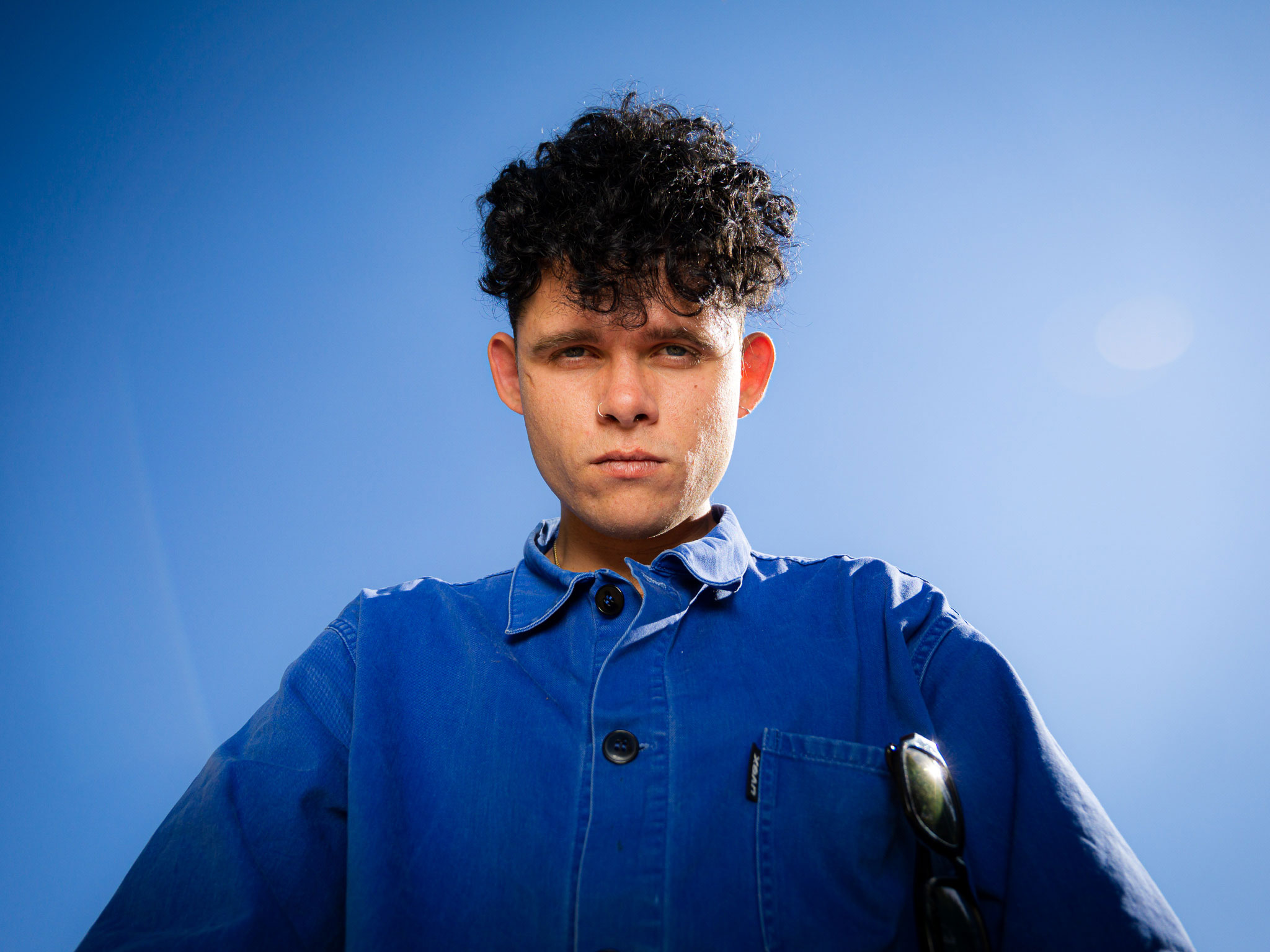
»Baby Angel is just a nice ideal to be aspired to.«
MYP Magazine:
On a trip through Texas with your ex-partner a couple of years ago, you got a special necklace—an angel wearing a cowboy hat. From this came the title “Baby Angel” for your 2019 EP. It seems that this term has become an important part of your artistic narrative. You are still playing with it, for example in the video for “Coffin.” What does “Baby Angel” mean in your life today?
Máni Orrason:
When I was very young, at the age of 16 or so, I stuck to my own name. But with the EP, there was suddenly this special feeling inside of me that I liked this alias more than Máni Orrason. So, a little after, I started calling myself “Baby Angel” and got—additionally to the necklace—a tattoo showing a baby angel with a cowboy hat. I love the sweetness of the name, it’s so pure and good in a way. And just a nice ideal to be aspired to.
MYP Magazine:
Only that the baby has grown up a little.
Máni Orrason:
Yeah, exactly. I’m a grown-ass-man angel now. (smiles)
More about Máni Orrason:
Photography: Juliusz Gastev
Interview & text: Jonas Meyer
Editing: Benjamin Overton
